Snit’s Wife
by Phil Gallos
You never know what’s going to come out of the woods.
It could be raccoons. When we lived at 49 Park Avenue, my first wife and I, we had a backyard like I have now – a patch of less than enthusiastic grass and then the mountainside: trees, boulders, cliffs, ineffectual fences. Florence Fullerton owned the house before she died, and we bought it from her niece. To Florence, the raccoons were neighbors, pets almost. She always had a fifty-pound bag of peanuts near at hand for them. We tried that. We thought it would be fun to feed the raccoons. But there was a dark side. They were pushy, rude. They acted entitled.
Every evening there were more of them. And there was something unsettling about looking up with a flashlight to see a dozen pairs of eyes shining back at us from the limbs and crotches of the beech trees and the maples. Then, later, after we were in bed and sinking into the peaceful embrace of sleep, the sky split by screams and guttural cries – caterwauling coons engaged in orgies of unkind sex.
Oh, sure, they were cute enough, waddling around propelled by their bulbous backsides. And the babies – adorable, I’m sure some would say, though I wouldn’t go that far. I think the word is too often inappropriately used. Nobody told us raccoons are a common vector for rabies. We were young and ignorant and lucky. We didn’t get sick.
In another house – the one I bought with Hanna, around the corner on Baker Street, after the passing of twenty-five years, after the passing out of one marriage into the possibility of another – there was the same kind of backyard against the side of the same mountain, Mount Pisgah, the place from which Moses saw the promised land. And no wonder. How could anyone stand on the rim of the ledges above our house, look out over this blessed valley with its lakes, its river and its verdant forest and believe there was a need to go any farther, even in February under a full moon at forty below when the beauty is the kind that can kill you without even blinking? But Moses had never set foot on this Pisgah, and the Old Testament has nothing to say about raccoons.
#
One warm day in the latter half of August, just before sunset, what came out of the woods was a woman.
I was in the kitchen, the back door open but the screen door closed, when I heard Onyx barking. I stepped out to see what had aroused his interest and saw her stumbling barefoot among the trees wearing something that looked like it must have been a wedding dress, what was left of it. She was also wearing a generous portion of dirt and random pieces of the forest. She wavered for a moment like a guttering flame, then fell.
This is no place to be clumsy or inattentive or exhausted. I’ve been up that hill a hundred times, and I still watch every step. The carpet of last year’s leaves on slanted land conceals mud and roots and limbs that can steal whatever traction you thought you had and send you flying to the side or forward or back; and there are more than enough rocks waiting to crack your skull whichever way you go.
When I got to the woman, Onyx was already there, licking her face. She was sitting where she had fallen, and I put out a hand to help her; but she didn’t want it. She got herself standing and continued down the hill, Onyx leading her toward the house, me taking up the rear.
She staggered into the kitchen, dropped to her knees, and pitched forward to all fours. She held herself that way for several minutes, panting like an old dog on a hot day, arms and legs trembling. Then she vomited onto the floor and passed out, falling face-first into her own mess.
I rolled the woman over, pulled paper towels from the rack, wet half of them, wiped the vomit off her, took care of the stuff on the floor. It wasn’t until I cleaned her face that Onyx began licking her again. It was around the sixth lick that she opened her eyes. She sat up, tugged at a twig that was hanging from her hair. I handed her a glass of water.
“What happened to you?”
She didn’t answer, didn’t look at me. She was looking at Onyx, who had stopped licking her.
“That’s my dog, Onyx. He’s friendly, but I guess you already figured that out.”
The woman put the empty glass on the floor.
“Would you like more?”
No response. I refilled the glass.
“Here. You can just leave it if you don’t want it.”
I set the glass beside her. She drank it dry and put it down.
I said, “Is that enough?”
She looked at me blankly and began to raise herself from the floor. I extended a hand. She ignored it and stood on her own power.
“Your feet don’t look too good. I can take you to the E.R. or to your doctor. Do you have a doctor? You want me to call the rescue squad?”
I could see Onyx was listening to me, but was the woman? It was hard to tell.
“If you just want to rest, I have a guest room. You can lie down there.”
She picked up the glass but didn’t say a word.
“Or you can use the couch if you’re more comfortable with that.”
The woman walked to the sink, put the glass in it. She ran the water and splashed her face. She was tall – five eight at minimum – with the legs of a long-distance runner; not particularly big above the waist but clearly strong: her arms sinewy, an archer’s shoulders. She turned away from the sink and looked in my direction but more past me than at me. She was scratched and cut and bruised and dirty; yet I could see a peculiar, subversive beauty flickering under the wounds and grime. Her hair, full of knots and debris, was a warm brown. Her eyes were large, turquoise, widely spaced; and her face had what a model friend of mine called “good lines” – prominent cheekbones, strong jaw – though the nose, long and a little flattened at the tip, didn’t quite fit; and her wide mouth was bent down at the corners as though the hooks of sadness had caught her there, and she couldn’t get free.
I said, “My name’s Baldr – that’s without the ‘e’ between the ‘d’ and the ‘r’…regardless of what you see on the top of my head.”
My intention was to lighten the mood, but the attempt at humor was lost on her.
I said, “What’s your name?” And, after a pause, “You can trust me,” which sounded absurd as soon as the words left my mouth.
I said, “You’re gonna be okay,” as though I actually knew what I was talking about.
It made no impression. Nothing I said made an impression. She was deep inside herself, her eyes open, the gates behind her eyes closed.
Then something in them changed. It was just a flicker, but I had to avert my gaze. It was like looking off the edge of a cliff, the last cliff in the world, the one you stand on before you jump.
She took a deep breath and moved toward me but strode past me and out of the room. I didn’t follow. It was clear that she needed more space than questions.
A door closed. I heard the toilet flush. Then I heard the shower.
I dug through my dresser looking for something she could wear and came up with a pair of flannel lounging pants and an old sweater that had always been too small for me but that I couldn’t let go because it was the last gift from my Aunt Gertrude. I placed these at the bathroom threshold and returned to the kitchen to assemble a meal.
I didn’t keep a lot on hand, now that Hanna and the boys were gone. There was a small steak in the fridge that I’d planned to eat with some leftover red rice and peas. I decided to give that to the woman. I’d be fine with a can of soup.
She emerged from the bathroom nearly an hour later wearing the garments I had laid out for her. She wasn’t striding now. She was hobbling. The adrenaline from whatever happened to her had waned, replaced by pain. She didn’t even glance in my direction. I watched her make her way through the dining room to sit down beside Onyx on the living room floor. She touched the side of his face. Then they engaged in what appeared to be a series of stare-downs; though they might actually have been talking to each other, communicating in a language that did not require words.
When the food was ready, I went to the living room and saw the woman curled up on the floor, asleep with the one creature in this house – or maybe in this world – she truly could trust. I let her be.
Next morning when I entered the kitchen, the woman was already there, ransacking my refrigerator. I said, “I’ll take care of breakfast.” She didn’t respond but withdrew from the fridge with a carton of eggs in one hand and a packet of sliced roast beef – my intended lunch – in the other.
“Put them on the counter,” I said. “We’ll add some veggies.”
There were seven eggs in the carton. I used them all, adding half an onion, the remains of a red bell pepper, a bit of broccoli, and most of the roast beef. I gave the woman two-thirds of the omelet. When she finished it, she went back to the fridge, pulled the rest of the roast beef, and devoured that, too. Then she downed the better part of a quart of milk.
I asked her, “Are you going to tell me anything about yourself?”
Silence.
“Give me a reason why I shouldn’t call the police.”
Silence.
“I don’t want to call them, but you’re not leaving me much choice.”
Silence. She walked away and curled up on the floor next to Onyx.
I washed my face, brushed my teeth, did the dishes, tried to figure out what to do next.
#
When Hanna left, she took all her belongings with her, perhaps to keep me from assuming she might return without my asking her, which was fair considering I’d been the one to blow it all up. It was about Jonathan, her oldest son. Hanna and I had been sitting on the front porch discussing where I fit in the family that was really entirely hers. She was wonderful; there was no doubt about that in my mind. But when it came to her boys, I had mixed feelings – had them since the beginning, when she was still living in Maine.
Actually, the mixed feelings were as much about myself as they were about her children. Did I have what it takes to navigate the path between the boys and their mother in a way that engendered their respect, if not affection, and protected her love for them – and for me – while maintaining my own sense of sanity? I wasn’t sure I was up to the task with one child involved, let alone three.
So it had come to the crucial conversation on the porch and my unvarnished words. Angelic Timmy was still angelic. Billy, the boy’s boy, was still funny and adventurous and easy to be with. The uncrackable nut was Jonathan: serious, skeptical, leaning hard toward cynical, quick to bristle.
I said, “Frankly, he doesn’t like me, and I don’t particularly like him. I am not going to jump through flaming hoops trying to make him like me. If he has any respect for me at all, that would be a sure way to destroy it.”
You don’t say something like that to the mother of her firstborn son expecting the best of outcomes; and that the discussion on the porch didn’t end in the worst of outcomes is exclusively creditable to Hanna.
She and the boys would leave, go back to York Harbor. She knew what she wanted. She would give me a chance to figure out what I wanted. If I came to understand that I wanted a life with her, she was ready. I had to decide that I was ready, too, and ready soon – not when her boys were grown up and moved away. Hanna didn’t say how long the chance would last, how quickly “soon” would be over.
At any rate, now there wasn’t a scrap of female clothing in the house.
#
I approached the woman lying on the floor beside my dog.
“I’m going out,” I told her. “I’ll be back in about four hours – maybe five. If you decide to leave during that time, please don’t take anything I haven’t already given you, and lock the door as you go.”
I got the usual nonresponse.
I drove to Plattsburgh fifty miles to go to Salvation Army and Goodwill and to avoid the local thrift stores where people might wonder why I was buying women’s clothing. Then I went to Target and to T.J. Maxx. I came home with six bags filled with shirts, pants, blouses, skirts, shoes, socks, panties. I chose a size that seemed to make sense and bought it and two sizes up and down from there in one-size increments. Bra size I couldn’t even begin to guess. If she wanted one she either would have to go out and get one herself or finally speak to me. Her first words could be 38C. I’d have been satisfied with that. At least she would have said something.
But when I brought the bags into the house and placed them in front of her, there were no words forthcoming. She emptied the bags onto the floor, sorted through the contents, made a big pile of what she didn’t want, put what was left into two bags and carried them away to the guestroom.
“Thank you,” I said, making no effort to disguise my irritation.
She replied by closing the door.
When she came out, the sweater and loungers I’d given her were bunched in one hand. She was wearing red Converse high-tops, black tights, a lemon-yellow knee-length skirt, and a pink cotton blouse over a black T-shirt. She extended the hand that held the bunched clothes, and I took them from her.
I said, “You look smashing.” I wasn’t being sarcastic.
No acknowledgment.
“I’ll get you a bra, but you’ll have to tell me the size.”
The woman sat down on the floor and began communing with Onyx. It was my turn to walk away.
#
The woman from the woods had arrived on a Friday. She spent that night on the floor and the next two on the couch. Monday evening, she was on the floor again, cuddling Onyx, while I sat in my father’s easy chair – my favorite place for perusing the newspaper, as it had been for him – reading page two of the Enterprise. It was the continuation of a front-page story about a missing teenage boy who had left his house Friday on his bicycle sometime between noon and one o’clock.
Some kids shooting hoops at Kate Mountain Recreational Park watched him pass, heading south on Route 3 toward the hamlet of Vermontville. They waved. He waved. A man mowing his lawn noticed him peddling west on Swinyer Road a quarter mile east of Paye Road.
“He looked like he was in a hurry,” the man had said.
I put the paper down. The woman was staring wide-eyed up from the floor. She must have been reading the front page while I was reading the inside.
“Did you know this boy?”
She said nothing, turned her gaze away, got up and went to the guestroom. The next time I saw her was at breakfast the following morning. There would be many more stories about the missing boy and the search for him, but I chose not to mention them to the woman; and she chose to avoid the newspaper, giving it the kind of distance usually reserved for carriers of contagion.
Over the succeeding days, the woman and I settled into a rhythm of approaches and distancings. I would approach, usually during meals, by telling her about myself, about my life and the people in it, past and present. She maintained her distance with silence.
I told her about the women – though not all of them – who had left their fingerprints on my heart and the men – there are only a few – who meant more to me than a quick wave on the street. Mostly I told her about Hanna: how we met at her bagel shop in a small town on the Maine coast where she’d moved after leaving a career as a Wall Street hotshot; how we had fallen in love and she’d rented an apartment in Saranac Lake; how she suggested we buy this house together, and we did; that things began to get tense; that I had issues with the oldest of her three boys; that it was decided I should have some time to myself to sort out my feelings and my priorities, and she and the boys went back to Maine. It had been five months since I’d seen her, though we telephoned and corresponded regularly. And I still didn’t know how I felt or what I wanted.
I thought if I let the woman from the woods know these things, she’d see me more as a real person, as someone nonthreatening, as somebody she could talk to and did not need to fear.
I told her about Saranac Lake, where I’ve lived most of my life: about its history as a lumbering and outdoorsmen’s town transformed into a health resort, a haven and last hope for people afflicted with tuberculosis from the late-19th to the mid-20th centuries. I told her about the famous people who had come here from all over the world and how some of them survived and some of them did not.
I’d insert a question every now and then: ask her where she was born, how long she’d been in the area, did she have a job, who were her friends, what would she like to do with her future – whatever I could think of that might elicit an answer and not frighten her. I might as well have been trying to extract information from my navel.
I told her what I could about the mountains and rivers and lakes surrounding the town and about the forest and the things that inhabited it. My verbal dissertations would usually come to an abrupt end whenever she finished eating. She would rise from the table and leave the room without giving the slightest indication that she’d heard anything I’d said, often terminating her audience in mid-sentence.
The only subject that commanded her attention was Onyx and his exploits. I informed her that he was not a pit bull but a pureblood Staffordshire, that he came from up in Akwesasne – Mohawk nation – sold to the stupid white man who didn’t care that the dog was more inclined to affection than combat and was better at licking intruders than biting them. I told her the names of all the mountains he’d climbed and the lakes he’d swum, how smart he is and how intuitive and observant, picking up on cues so subtle I never noticed myself giving them. It didn’t matter if I told the same story six or seven times. The woman would stay at the table until I finished. Then she would sit down with him and they’d engage in their eye-to-eye communion.
What was I supposed to do with this woman? Why wouldn’t she talk to me? Was she too traumatized to speak, or was she simply a mute? Wouldn’t she at least give me hand signals or write something down? Was she developmentally disabled? Or mentally ill? How could I help her to be whole again? Was that even possible? I wondered what would happen if somebody came to visit me. Fortunately, nobody did. I have my friends, but I’m not what you’d call a big entertainer. And I wondered what kind of trouble I might be making for myself by sheltering her. Was she a refugee? Or was she a fugitive? Each day, these questions arose anew, leading only to unsatisfactory answers.
And so, days became weeks.
#
It had been twenty minutes since I’d let Onyx out. It takes him about five minutes to do what he needs to do. The rest of the time he’d spent snooping around the neighbor’s compost bin and providing a landing strip for deer flies. When I called him to come in, the woman was entering the kitchen.
“Your dog’s white,” she said.
“He is,” I answered trying to be cool, trying to hide my astonishment – elation, really – trying to act as though these weren’t the first words she had spoken in the entire three weeks she’d lived in my house.
“And you named him Onyx.”
“I did.”
“A little obvious, don’t you think?”
“What would you have named him?”
“I’d’ve called him Amethyst.”
“You’re right,” I said. “Onyx for a white dog is too obvious. Amethyst is perfect. But I think I’ll keep calling him Onyx. He’s kind of averse to change.”
“But I can call him whatever I want,” she said.
“Yes you can.”
When she smiled – a smile that was gone as soon as I saw it – I damn near cried.
I gave myself a couple of beats to recover before I said, “So, since we’re on the subject of names, maybe you could tell me yours.”
Bad move. She left the kitchen, walked down the hall to the guestroom, closed the door. But five minutes later, she was back. She took a pitcher from the top of the fridge, filled it, and began watering the plants. During her time in my house, the woman from the woods had taken on more and more responsibility for the operation of the place. Silently, casually, and very competently, she assumed ownership of the chores: dish washing first, then watering the plants, laundry, vacuuming, mopping, dusting, cleaning the windows, the stove, the inside of the refrigerator, whatever didn’t require her having to leave the house. I always thanked her. I told her more than once she didn’t need to do these things, didn’t need to feel obligated. She’d say nothing and keep working. It had reached the point where the only thing left for me to do was cook. She seemed content to let me do that.
The woman was about half done watering when she looked up from a philodendron and said, “My name is Vivian.”
All the time she’d spent in my house, I had never told her my last name. I told her everything else, but not that. I decided to push my luck and ask Vivian hers.
“Unh-uh, Baldr”, she said. “You go first.”
“Dash. It’s Dash. Are you happy now?”
“My God, are both of your parents sadistic or just one?”
“Just my mother. My father is dead. And he was very kind to me when he was alive. So what about yours?”
“I don’t talk about my parents.”
“No. Your name. Your last name.”
“Snit. I am Vivian Snit.”
“You gotta be kidding me.”
Vivian shook her head. “And I don’t have my parents to blame for it, either. I did it to myself. I married Joshua Snit. He asked me to take his name. He said it would be proof that I really loved him. I should have heard that as a warning. I should have known, if he needed proof, I was with the wrong man.”
“I’m sorry,” I said.
“So am I.”
Vivian went back to her watering.
“So, what was your name before you married Joshua Snit?” I couldn’t help myself. Once I start asking questions, it’s hard to stop. She answered by turning her back to me. How long would she stay silent? I had no way of knowing.
Two days later, at breakfast, Vivian said, “Why haven’t you called the cops?”
“Beats me,” I said.
In actual fact, I knew very well why I hadn’t called the cops and hadn’t told her to leave, either. She was young and strange; and, since the separation from Hanna, I felt old and ordinary.
“That’s not much of an answer. For all you know, I’m a murderer.”
“Well, I’m still alive. Maybe I figured you got enough trouble in your life without me bringing in the law. I don’t know who you were running from when you came falling down the hill out there. Maybe it was your husband. Maybe…who knows? And maybe I don’t want to see you have to go back.”
The flicker of a smile crossed Vivian’s lips again, lingering a little longer this time.
“You’re almost as sweet as your dog,” she said, leaving the table. Then she joined Onyx in the living room.
So this is how it went: brief exchanges every couple of days embedded in a matrix of silence. At this rate, with the backlog of questions in me growing with every conversation, they’d be throwing dirt on my casket before the questions were all answered.
#
One afternoon, hoping to pry the lid loose from her recent past, I interrupted Vivian’s folding of freshly laundered towels with an intentionally pointed question. “If you’re married, where’s your wedding ring?”
She looked at me like I had just asked her to throw herself in front of a train.
“I left it on a particularly sharp stub…on a particularly dead spruce tree…in a particularly dark swamp. I told myself if I made it out of that place alive, I would never need it again. And if I didn’t make it out alive, no one was going to find whatever was left of me with that ring on my finger. One way or another, I would live a free woman, or I would die a free woman.”
She paused a moment, then said, “Do you know what I admire about you the most?”
I was afraid I’d screw it up, so I let her answer her own question.
“You never put Onyx on a leash.”
Vivian resumed her folding. She didn’t say another word for four full days.
#
It was a morning like any other, about two weeks after she’d first spoken. Vivian was washing the breakfast dishes. I was sitting at the kitchen table with my laptop, reading email. She shut off the water – the washing unfinished – turned around and leaned against the sink, hands gripping its edge behind her. I looked in her direction over the top of the screen. The way she looked back at me – well, I didn’t have to be a genius to know that I should shut down the laptop, put it aside, and pay attention. She spoke without any preamble, as though picking up the thread of a discussion after a momentary interruption.
“He got involved with this religious group. The Church of the Holy Procreator, they call themselves. The whole thing revolves around making babies. The purpose of marriage is procreation. They believe a man is like God because he is the one who makes the babies. The woman merely carries and delivers them. The man provides the seed. The woman is the soil into which the seed is planted. It’s insanely patriarchal. I don’t know how Joshua swallowed this. It’s so opposite what he told me he believed when we were dating; but, after we married, he began to change. The church thing was just the last brick in the wall. He became somebody I didn’t know. They called sex ‘doing God’s work;’ and they took all the sex out of it and left the work.
“They’d concocted this bizarre mythology based on ovulation. When I was fertile, I was his bride. It was the wedding night all over again, but better because the real wedding night may not have been the best time for conception. And rolled into this was the wedding ceremony, and part of the ceremony was the wedding dress. That’s where any similarities to our actual wedding ended.
“My first ovulation after we joined the church, Joshua brought my wedding dress out to me. I thought I’d never wear it again; but it was precious, and I kept it stored in a cedar chest in the attic – maybe for a daughter, if I ever had one. He said, ‘Put it on. Nothing underneath.’
“I thought, ‘A little kinky for him, but maybe he’s getting creative. Could be fun. ‘
“He told me to get on the bed. I did. Then he dropped his pants and mounted me. Really. That’s the only way to describe it, like I was a dumb beast. There was no foreplay at all. He didn’t kiss me. Didn’t even hold me. Supported himself on his hands like he was doing push-ups. He humped away until he planted his seed, as he put it, rolled off, wiped himself on a towel he had there, pulled his pants back up, and knelt by the side of the bed like a child and prayed aloud that the soil would be fertile and the seed would take root. I was appalled. I got up, pulled off the dress, went to the bathroom and took a long shower.
“I asked the other women in the church about this, if their husbands were maybe more loving. They said the biological part, the earthly part of conception was gross. The quicker it was done, the better. Nine months of pregnancy, the very earthly experience of childbirth, lactation and breast-feeding, all that biology was fine. No. Better than fine. It was beautiful. But sex, and the bodily responses that went with it, and the emotions that went with it, emotions they apparently did not want to feel – that was disgusting. I couldn’t figure out who was really driving this religion – the men or the women. It was like a symbiosis of sickness.
“Everything is timed around ovulation. Sex became a ritual. I guess for him it was a sacrament. For me it was more like sacrilege. Because there was no loving in it. No passion. No lust.”
“Mechanical,” I suggested.
“Yes, mechanical. And because it had to happen whether I wanted it or not, it was rape. And, as time went on, I wanted it less and less, so I got raped more and more.”
“Did you try to resist him?”
“I did. Sometimes I did. I fought back. But resistance was a sin. If I didn’t help him do ‘God’s work,’ I was sinning; and I had to be punished.
“Joshua raises pigs. There’s thirteen of them in a big pigpen out front of the house. The fence is electrified. You can adjust the juice for the kind of animal you’ve got inside. Pigs can take a lot of juice – enough to knock you on your butt. So that was my punishment. He’d put me in the pigpen and padlock the gate, which was also electrified. It didn’t matter what it was like outside. It could be fifteen degrees and raining bricks. If I sinned, out I’d go.”
I didn’t know what to say. I wasn’t sure if what she was telling me was even true; so, to try to get something more verifiable, I asked, “Where’s their church?”
“It’s in a truck garage way down the Cold Brook Road, maybe three miles east of Vermontville. Joshua’s farm is on the west side of Vermontville, off the end of the Paye Road. It’s about five miles from there to the church.”
“I’ve seen that garage. You could put a couple of semis in there.”
“They fixed it up inside to look like a church should look, and you can almost ignore the smell of diesel oil. The first time Joshua took me there, the leader of the group – they call him Pastor Paul – gave a long sermon about our duty to increase the number of believers in the world. He kept using that word, ‘believers,’ but he never said what we were supposed to believe in: was it God, was it Jesus, was it him, or was it just the need to make more babies, to keep the women pregnant? The rest of the service was very short. It almost seemed like an afterthought.”
“Did you know anybody there besides Joshua?”
“No. They were all strangers to me. I’ve never seen any of those people anywhere else. Later, as I got to know them, I found out they came from all around, but all from tiny little places that make Vermontville look like a metropolis.”
“Such as?”
“Oh, let’s see. How about Sevey’s Corners? That was the farthest away. Inman. Duane Center. Swastika. McCollum’s. Duane’s the biggest. The population there is, what…maybe 65? The thing that struck me was not how small these places are, but how isolated. The county bus goes through McCollum’s and Duane twice a day, but the other places, nothing. They’re like little planets out in space. These women are really in their own separate worlds – literally as well as figuratively. So their interaction with other women is limited. So they’ll stay pure.”
“As in purity of thought? Purity of ideology?”
“Exactly. It was disturbing. Anything I said that came from a different way of seeing the world and a woman’s place in it was met with espousals of how great their lives were. How privileged they were to be doing ‘God’s work’ and to have such supportive husbands to take care of them and protect them. They tried to convince me how fortunate I was to be chosen by Joshua to be the vessel for his seed, that God had smiled upon me, like each of us was an expression of the Blessed Virgin at the Annunciation. It didn’t matter that I had as many lovers before Joshua as he had years in his life. He was living a fantasy – their fantasy – and he was playing it out through me. That was another reason for the wedding dress on nights of procreation. It was always the first time. We women had to be always virgin. We had to be inviolate and inviolable. And the white dress symbolized the purity of our work.”
“Even though it was disgusting.”
“Even though it was disgusting. That was only one of many ironies they didn’t notice.”
“Irony is the devil’s work.”
Vivian smirked, then continued her recollection of the after-church conversations with the women.
“Most of the time, the only thing they talked about was babies – making babies, taking care of babies, making sure there would be more babies, sharing information on ways to make sure conception would take place, to make sure pregnancy would go full term, to make sure birth would be easy. They compared one child’s personality to another in birthing terms: Rebecca was difficult; Jordan was early; Mary was quick – as though the mother’s experience of the child’s birth determined the child’s identity. Once the babies reached a certain age, they were taught to take care of the younger ones. The oldest were nothing short of surrogate parents, sacrificing their childhoods to make it possible for the mothers to keep breeding.”
Vivian delivered the last sentence with a level of venom that was almost physical. I decided never to get her angry at me. I was nearly successful.
“I’m done with them,” she said. “Do you really need to know more? I’ve got to finish these dishes.”
I didn’t want to push her too hard, but I didn’t want to let it drop; so I waited until after lunch when I said, “But you didn’t get pregnant.”
“I still had some freedom at the beginning. I had actually hoped to have children with Joshua eventually, but when he got into the Procreator thing, the idea of making a child with him under those circumstances, those notions of what motherhood should be…I just found the whole thing revolting. So, after that first time, I went to my doctor and got an IUD. And just in case something went wrong, I planted special herbs in the garden: blue cohosh, black cohosh, angelica, pennyroyal. Joshua found out they were abortifacients. He pulled them up and burned them.
“That was the first time he hit me. I hit him back. Split his lip. He couldn’t believe it. He hung his head down, but I could see the tears, anyway. I thought he was crying because he had treated me so badly. I thought he was crying from remorse. I knew it wasn’t because of the pain. He’s very tough. Turned out he was crying because he couldn’t understand why he was being punished by being given such a sinful wife. He was following God’s plan. What had he done wrong to deserve this?
“I told him this wasn’t God’s plan. This was some twisted bullshit make-believe concocted by a bunch of men who were threatened by a woman’s power and enabled by a bunch of deluded, insecure women who were unable to find fulfillment in anything other than making babies – more and more babies – because they had to have something around more helpless than them. I didn’t say that so much as shouted it, spitting out the blood that was running from my nose.
“He didn’t argue with me. He looked utterly shocked, like I’d just kicked him in the balls, which I suppose was my intent. Believe it or not, I felt sorry for him. I went to him, comforted him. I thought I would leave, but I stayed. We slept together. No sex, of course – it wasn’t the right time – but I thought maybe what had happened and what I’d said would snap him out of it. He’d come to his senses. He’d see that the way he’d been treating me was hateful and the things he’d been believing were perverted. I was wrong.”
Vivian bit her lower lip, head bowed, hand against her cheek.
“Do you want to stop?”
“I’ll be alright. It’s just…it’s…. I feel like Persephone returned from Hades.”
She raised her face to the ceiling, took a deep breath, exhaled slowly, looked out the window…then back at me.
“I’d always been able to come and go as I pleased. No questions asked. A couple of days after the fight over the herbs, I said I was going to town for a while. Joshua didn’t say anything. He nodded his head. I got in my car; but, when I turned the key, nothing happened. I took a look under the hood. I thought maybe a wire was loose. There was a loose wire, alright. I could see it hanging where it should have plugged into the coil…because the coil wasn’t there.
“Then Joshua came up behind me. He says, ‘You’re not going to Saranac Lake anymore. You’re not going anywhere off this farm except with me.’
“I ran. He caught me, picked me up – Joshua is very strong – and carried me back toward the house, but not to the house. When I saw where we were going, I started punching and kicking him. He didn’t seem to notice. He opened the pigpen gate, threw me down in the slop, and locked me in…again.”
“I heard pigs are very intelligent animals,” I said.
“They are. I got to know them quite well. At least they treated me with respect.”
Vivian stopped talking. She looked out the window again, her eyes unfocused, as though what was beyond the glass was not what she was seeing.
“Are you alright?”
“Yes.”
I gave her another minute.
“You were talking about the pigpen.”
“Yes. I was. You’re right.”
After another few minutes, she said, “Joshua came back after dark. He pulled off my shoes and left again. I was too depleted to fight him. He didn’t let me out until the following sunset. He said he had a surprise for me. There was nothing creepy about the way he said it, but I was creeped out anyway.
“When we got to the porch, before he’d even opened the door to the cabin, I could smell it. It was like smelling heaven, considering I hadn’t eaten in over 24 hours. I have a high metabolism. I need a lot of food.”
“I’ve noticed that,” I wanted to say but didn’t interrupt.
“We went inside, and the table was set. He had a candle burning in the middle. He’d made it real nice, but I didn’t care about that. I just wanted to eat. Then, when he was asleep, I’d be out of there. I didn’t need a car. I just needed to get away from this madman I’d married. I’d walk to Saranac Lake, if I had to. It’s only thirteen miles. It would take me four hours if I kept a good pace.
“Joshua had made a big pot of venison stew. It was the end of our last deer, something you’d save for a special occasion. It was delicious. I ate two huge bowls of it. I actually started to thank him. Then I passed out. Just before it all went black, I realized Joshua had drugged my stew; and I knew this was only the beginning of the surprise.
“When I woke up, it was after noon the next day. My pigsty clothes were gone. Joshua had dressed me in a clean blouse and skirt. No shoes. No underwear. There was a chain where my belt should be. It was wrapped in velvet so it wouldn’t bruise me or leave other marks on my body. The chain was closed with a padlock that connected it to a cable by a loop made with a cable-clamp. The other end of the cable was clamped around a post that supports the main crossbeam in the cabin. The cable was long enough for me to go anywhere I needed inside the house. Outside, I could get on the porch but not off it.
“Joshua was outside feeding the dogs. They always make a big noise when he comes with the food. There are ten of them. He bred them as hunting dogs for big-game. It doesn’t matter that hunting big game with dogs is against the law. It’s the traditional way; the way things were always done going back to prehistoric times. Joshua insisted there were higher laws. This should have been a signal to me that there was something wrong, that he was not right for me. But, in the early days, he was so kind and so considerate, polite, deferential. And he was handsome and strong and very virile. Inexperienced, but virile. I thought I could teach him how to please me. Even temper his ideas about what he called God’s law, the law of nature. For all my own experience, I couldn’t have been more naïve.
“I looked everywhere for the tools that could set me free. They were gone. No wrench. No pliers. No hacksaw. No bolt cutter. He had taken them all away. One side of the kitchen faces the dog yard. I took a cast iron frying pan off the stove and threw it through the window over the sink. I screamed. Just screams, at first. Then words. Then sentences. I couldn’t seem to stop myself. I cursed him and his church and his God in every way I could think of cursing.
“The front door opened. Joshua stepped into the room. I grabbed a glass from the drying rack and hurled it at him. It would have hit him, but he was quick enough to step behind the half-open door. It shattered against the door frame.
“He said, ‘You can throw everything at me there is to throw. When you’re done, I’ll still come in, and you’ll still be on a tether.’
“The last curse I shouted was, ‘May your dogs rip you apart and feed the pieces to the pigs!’ Then I sat on the floor and cried.
“When Joshua came in again, I didn’t throw anything. Why waste the energy? He cleaned up the broken glass and put a piece of plywood over the window. He said, ‘You’d better start making dinner.’ Very matter-of-fact, like everything was completely normal. When he went to bed that night, I refused to go with him. He didn’t protest. I slept on the couch.
“I got up in the middle of the night to use the computer – an old laptop Joshua had gotten at a yard sale – to email my parents about my situation. They’d always been suspicious of Joshua, and they weren’t afraid of him. My parents and I were not on the best of terms, hadn’t had much contact since the marriage; but I knew they would do whatever was necessary to get me out of there.
“The computer was gone. So were the cell phones – which don’t work there half the time anyway – his and mine both, along with every pair of my shoes and all my underwear. How a bra and panties were supposed to help me escape is something I still haven’t figured out; but it certainly added to the creepiness factor. Maybe that’s what he intended. Maybe he thought that would intimidate me. A kind of passive-aggressive sexual dominance. I tried to call out on the land line. I hoped, if I whispered, he wouldn’t hear me. But it was dead. By this point, I wasn’t surprised.
“The way the chain was wrapped around my waist, it was easy to change blouses and shirts or pants and skirts; but a dress was more difficult, especially the wedding dress with its frills and its long skirt. The space between the chain and my body wasn’t wide enough to allow all that fabric through. When procreation day came, Joshua presented me with a pair of leg irons. I don’t know where he got them. I went nuts. I tried to whip him with the cable, but he got hold of it and wrapped all the slack around one of the bedposts, so I could kick and swing my fists, but I couldn’t go anywhere. Then he explained to me that the leg irons were just temporary, just so he could take off the chain so I could put on the wedding dress.
“He said, ‘Be nice, now. This dress is your purity made manifest. You don’t want to ruin it.’
“I thought I’d kick him in the face when he tried to put the irons on, but then I decided he would eventually get them on regardless. He was so much stronger than me, and I was as likely to get hurt as him in the process. So I stopped fighting it, but I didn’t cooperate. I made him do everything. He took my shirt and jeans off, put the leg irons on, unlocked the cable from the chain around my waist and locked the cable to the chain between the irons. He put the wedding dress over my head, buttoned it up in the back. Then he reversed the procedure with the chains and irons and the cable. He gave me enough slack in the cable to get on the bed. He was pointing at it. I didn’t complain. I got on the bed and assumed the missionary position. I had a little surprise for him. He climbed up from the end of the bed to mount me, and I kneed him in the groin. The look on his face was worth most of what followed.
“When he recovered, Joshua grabbed me by the ankles and slapped the irons back on. He wasn’t gentle about it. He dragged me toward him until my feet touched the floor and pulled me upright by the waist chain. He unlocked the cable. He threw the chain on the bed, unbuttoned the wedding dress and pulled it off.
“I knew what was coming next. I had committed an act of violence against his godhood. Such a terrible crime could not go unpunished. I thought at least he’d give me some other clothes to wear, but he didn’t. He said, ‘The sinner must repent or pay the price of her sin,’ and he pointed at the door.
“I tried to punch him, but he caught me by the wrist at half swing; and, the next thing I knew, my arm was twisted behind my back. I had no doubt he could have broken it if he wanted. He pushed me through the kitchen, opened the door, pushed me onto the porch. When we got down to the lawn, he let go of my arm. He said, ‘I don’t mean to hurt you. I trust you to go the rest of the way under your own control. God loves you.’
“It was those last three words. If he hadn’t said those last three words, I wouldn’t have done what I did next. It was stupid. I knew that even before I did it. I turned around and took another swing at him. He ducked, grabbed the ankle chain, and pulled me off my feet. I landed on my back, and Joshua dragged me across the lawn to the pigs. I thought he’d pull my feet off before we got there. He opened the gate and slid me to the far side of the sty. Then he took his time getting back to the gate, patting the pigs as he went. He knew there was no way I could catch him shackled as I was. He locked the gate behind him and walked away to the cabin.
“It had been raining all day and the temperature was dropping. I sat shivering, naked, covered with cold mud. I spent the night between two sleeping sows trying to keep from freezing to death, thinking I had to be smarter about what was happening to me. I had to be calm. I had to be patient. Sooner or later, someone would wonder why they hadn’t seen me, wonder what had happened to me, maybe come looking for me. Or Joshua would make a mistake. He couldn’t think of everything. He couldn’t control everything. One day or night he’d slip up. I just had to be ready, had to be alert to the opportunity when it presented itself.”
#
Vivian decided she would cooperate. But her body would not cooperate, not with that IUD in it.
“Joshua kept me in the house for almost a month. He only let me out again because people began asking what happened to me, why didn’t they see me anywhere anymore. He told them I was home sick. Then they started offering to come by to visit, to help, to bring meals, that sort of thing. He told me all this. He said, ‘I’m going to have to let you out. You can come with me to Gene’s. You can come with me to Norman’s. You can come to church. But I’m not going to take you to Saranac Lake.’
“He said he couldn’t trust me there. He could trust me in Vermontville at Gene’s. He could trust me in Bloomingdale at Norman’s. But Saranac Lake was the devil’s playground. To him it might as well have been San Francisco. Too much temptation for my weak character. He was afraid if he exposed me to so much sin, I’d become more sinful than I was already, and he’d lose the little progress he’d made with me since the day he put me on the leash – which I was still on except when he took me with him to church or to get supplies – to Gene’s and Norman’s, like I said. But even in those places, he wouldn’t let me get near the door unless he was standing next to me.
“After a few more months, Joshua began to wonder why I hadn’t gotten pregnant. He still had me tracking my cycle, only he didn’t trust me to check my ovulation alone. He had to be there to see the result. Then he had himself evaluated. His doctor said there was nothing wrong with him; he had a healthy sperm count. So, it must be me.
“Joshua didn’t want to take me to my doctor in Saranac Lake. He didn’t trust her. He set up an appointment with a gynecologist in Malone. I said a prayer. The doctor – Garfield Black – must’ve been a hundred years old. I didn’t know whether to laugh or to cry. When he refused to allow Joshua into the examination room, I knew half my prayer had been heard. I told the doctor about the Church of the Holy Procreator and the IUD. He understood. He said not to worry. I didn’t tell him about the leash or the pigsty. I didn’t want to get Joshua arrested or see him in jail. I just wanted to get away from him. He wasn’t a bad person. He was confused. Maybe something would happen to make him see how crazy this Procreator stuff was. He’d come around. And if he didn’t, I’d be gone. Time was on my side. My chance would come. So I didn’t say anything. That was the biggest mistake I ever made.
“When we returned to the waiting room, Joshua stood up and said, ‘Well, Doc, what’s wrong with her?’
“He got corrected immediately. The doctor said, ‘You will address me as Doctor Black, and there is nothing wrong with you wife. She has no anatomical or biological irregularities that would prevent conception. She is strong and healthy. Be thankful for that.’
“When Joshua asked the doctor why I wasn’t getting pregnant when he was doing everything right, the doctor said, ‘It’s not up to you. It’s up to God.’
“I could have kissed that man. You should have seen Joshua’s face. He got me out of there in a hurry.”
#
They went home. The months passed. The leash remained. Though Vivian was uncombative and cooperative, Joshua could not bring himself to trust her. He couldn’t shake the feeling that something was wrong with Vivian regardless of what Dr. Garfield Black of Malone had told him. There was something Vivian was doing to sabotage “God’s work.”
“He asked me outright one day – it was in March – ‘have you got one of those intra-uterine devices inside you?’ I said, ‘No,’ without hesitation, looking him square in the eye, doing my best to make a bald-faced lie sound like the truth. He didn’t believe me.
“He said, ‘Here’s the way it’s going to be. You are not pregnant this month, so you are going to be punished for one day. For every month after this that you fail to provide a fertile bed for my seed, you will be punished; and an extra day will be added to your punishment for each month that passes that my seed does not take root.’ I asked him if those days would be spread out through the month or consecutive. He said consecutive.”
Vivian paused, shook her head, lips pressed tight.
“I thought about killing him. There were many ways I could do it. But I might wind up dead also. Nobody but Joshua had come down our driveway in over half a year. It’s not an inviting place. There are five different signs at the beginning of the drive warning that this is private property and trespassers will not be treated kindly. Then there are the gates – two of them – locked at all times. The only outsiders with keys are the chief and the assistant chief of the Bloomingdale Volunteer Fire Department.
“The driveway runs a half mile west through the woods from the end of the Paye Road before it even gets to the first of our clearings, where the garden is. Then there’s a line of trees and another clearing – the old sheep meadow waiting to be a sheep meadow again, except Joshua doesn’t have the money to start a flock because of his 20% tithe to the church. Then more trees and the final clearing with the pigsty and the dog yard with its ten hutches and then the cabin, which was once half the size it is now. Joshua expanded it to make space for the children I was supposed to give him. Its only outside utility is the single telephone line that I insisted on as a condition of our marriage. Electricity comes from solar panels and a small wind turbine. Heat comes from wood. Mail is picked up at the post office in Vermontville. Joshua gets the propane tanks refilled at Gene’s.
“There was enough food in the house for a week. Enough firewood for maybe ten days. The leash wouldn’t let me reach the woodshed. The garden might as well have been a dream. Sure, I could kill him; but, if I didn’t starve to death before someone found me, I’d probably freeze. I put the idea aside. It was just too crazy.”
“By July, it didn’t seem so crazy – or at least less crazy than not doing anything. I was thinking, ‘If I don’t figure out some way to get away from here, I’ll end up dead anyway.’ Two days later, Joshua took me with him on his regular run to Gene’s, and I saw Walt LaVoy, their new employee. The first thing I thought was, ‘There he is. That’s my rescuer.’
“He was tall – taller than Joshua, though not as heavily built. Still, he was strong looking. He was just a kid, really. He told me later he was seventeen. Handsome in a mild sort of way. He lived in a little house on Sink Hole Road with his father and sister. She’s a track and basketball star at the high school. He was very proud of that.
“Gene had Walt stocking shelves, most of the time, so it was easy to talk to him in little bits; and I gradually cultivated a relationship with him. He was not shy but serious and courteous. I could tell he liked me. I’m sure he was flattered that a grown woman would pay such attention to him, relate to him as a man and not as a boy. Maybe he even found it exciting. Maybe he fantasized about me. I was hoping he did. I was counting on him wanting me enough to come to the farm and free me.
“Each time we went to Gene’s, I gave Walt a little more information. After several weeks, he knew where I lived, how to get there, and when Joshua was not around. I made him promise to keep whatever I told him secret. But I didn’t tell him about the leash. That might be too much for him. He might tell somebody. If Joshua got wind of it, I feared what he might do to me.
“I tried to be discreet, but Joshua must have noticed my little trysts with Walt. One day, as we got out of the truck at Gene’s, he said, ‘I want you to behave yourself. If I catch you talking to that boy again, it’ll be the last time you come here.’
“I was desperate. We went into the store. I didn’t go near Walt. When he approached me, I gave him a walleyed look and shook my head. Finally, he went into the stockroom. I took a can of soup from the shelf and tore the label off. Then I took a pen from a spinner rack and broke it out of its blister. I wrote a note on the inside of the label: ‘I’m being held prisoner at the cabin. Come free me as soon as you can. Bring bolt cutters and a pair of sneakers no smaller than size eight.’
“I folded it and dropped it on the floor where Walt had been stocking and said a prayer to the Goddess that Joshua would not see it and Walt would. Then I told Joshua, who was talking to Gene at the cash register, that I wasn’t feeling well and could we go home soon. As we left the store, he said, ‘Not feeling well? Maybe coming on to ovulation time.’
“He was right about that. I ovulated the next day. We did the procreation ritual as usual; but, when Joshua was done, he said, ‘Maybe you’re just odd. Maybe ovulation is not when you’re most fertile. I think we’ll try for a few more days.’ Somebody must have clued him in to the concept of the fertility window. He didn’t ask me why I hadn’t told him.
“That’s how it was, then. Each day, he dressed me in the wedding gown before he went hunting – he was after small game, using a Remington .20-gauge shotgun for rabbits or grouse or maybe a turkey or anything else he might flush…it didn’t matter the season hadn’t started. When he came back, I had to be ready for him to do ‘God’s work.’
“I didn’t know when Walt would come, didn’t know if he would come at all or if he’d even seen my note. And, if he had seen it, did he open it and read it or just throw it in the trash not knowing what it was? I could only hope he saw it and read it and remembered that Joshua always went hunting in the afternoon. That was the safest time to come.
“I didn’t dare change into regular clothes. I thought getting out of the wedding dress with the leash on might be easier than getting into it; but what if it wasn’t? What if I got stuck with it half off and couldn’t get it all the way back on again? If Joshua came home and found me like that, he would be angry. And it could be worse if I succeeded. If Joshua returned, and I was in street clothes, he wouldn’t be just angry. He would be suspicious. I couldn’t risk him thinking I was plotting an escape. For a wife to run away from her husband was the worst sin a woman could commit. No punishment was too severe. I would have to wait for Walt in the wedding dress.
“But Walt didn’t come. Not the first day and not the next. But on the third day, there was a knock on the door. I opened it, and Walt stood there, my young rescuer, with a hacksaw in his hand and a pair of track shoes hanging by the laces from his belt.
“I said, ‘Where are the bolt cutters?’
“He said, ‘We don’t have any. But I got my sister’s shoes.’
“He looked at me like he couldn’t quite figure out what he was seeing. Then he said, ‘I couldn’t get my parents car, so I rode my bike.’
“And then, like what he was seeing finally dawned on him, he said, ‘Oh my God!’ and stepped into the kitchen.
“I thought, ‘Oh my God, alright. Oh my God, no bolt cutters. Oh my God, no car. Oh my God, we’re screwed.’ But I said, ‘Don’t worry. We’ll be alright, but we have to move fast.’
“I stripped the velvet off the chain with a pair of poultry shears, and Walt went to work with the hacksaw. It was slow going and awkward. There wasn’t enough slack in the chain to put it on the edge of a table or something else stable enough for sawing. We got a piece of furring strip from the kindling pile and slipped it between the chain and my dress. I leaned against the wall and held the chain on the wood above my hip, and he got down on his knees to saw. He had to stop every few minutes to let the steel cool off even though we were lubricating it with cooking oil. It just got too hot to hold in place. He had to cut through both sides of the link. It seemed to take forever.
“While he was working, I told him how brave he was and how glad I was that he’d come, how thankful. He looked up at me like I was Guinevere or something. What a sweet boy. I wish we’d had more time.”
I saw the tears rise in Vivian’s eyes and spill over, silently. I brought her some tissue. She shook her head.
“This face needs to feel these tears,” she said.
Walt cut through the chain. Vivian was free. He unlaced the shoes from his belt and placed them on the floor for her to step into. At that moment, the door flew open and Joshua Snit stepped into the room, the Remington in one hand and no game in the other.
“That was not a good sign. Coming home empty handed? The hunter? The provider? It always made him feel inadequate, and that seriously shortened his fuse. Then he noticed my dress, oil stained and speckled with steel dust.
“I moved over to the sink. Walt was behind Joshua, now, standing between him and the door. His presence hadn’t seemed to register with Joshua, or the fact that I was off the leash.
“’What have you done to your dress?’ he bellowed. He was pointing the shotgun at me now.
“’Is there no limit to your sin? Must you sully everything that is pure?’
“I thought he might shoot me, he was so enraged. But he wheeled around, pointed the gun at Walt.
“’And you,’ he shouted, ‘you trespasser, coveting my wife these weeks! Do you think I’m blind? And so now you’re here to kidnap her? Steal my wife from me? Tell me why I shouldn’t kill you where you stand.’
“Poor Walt. He hadn’t bargained for this. He looked like he had just seen the end of the world.
“I said, ‘Stop it, Joshua. This wasn’t his idea. I lured him into it. I told him to bring the shoes and the hacksaw. Kill me if you’ve got to kill someone. He’s just an innocent.’
“But Joshua wasn’t hearing me. He pumped a shell into the chamber and aimed the gun at Walt’s chest. He said, ‘The Lord giveth,’ his voice rising. I knew where this was going. He was saying, ‘And the Lord….’
“Walt hadn’t moved. It was like his feet were nailed to the floor. I grabbed a pot by the handle – a big, heavy one – and swung it with all my strength as Joshua said, ‘Taketh away.’
“I don’t know what came first, the blast of the gun or the clang of the pot against the side of Joshua’s head. They both fell together. Poor blameless Walt. If you’re that close to the muzzle, it doesn’t matter that the gun is only meant to kill rabbits. When I looked at his face, so full of surprise at his stolen life, I felt a pain like I’ve never felt before and haven’t stopped feeling since.
“And then, before I even realized I was moving, I was out the door.”
#
Vivian ran from the house, left the front door agape and the screen door flapping in the wind. The hogs grunted greeting as they watched her go, her long strides carrying her past their pen and into the second growth forest west of the farm, down a long-abandoned logging road choked with saplings of aspen and birch. She didn’t think about the men she left in the house. She didn’t wonder if Snit was dead, didn’t doubt that Walt-the-rescuer was. She thought about nothing until she reached the Oregon Plains Road where it crossed the old Delaware and Hudson Railroad bed, long ago shorn of tracks and ties, and the logging road came to an end…or a beginning.
She stood for a moment and listened. Nothing. The wind had stopped. Silence, like the world was holding its breath. Then she exhaled and began walking the road south, the empty pavement stretching away before her, a straight black wound in the flesh of the forest; and, this being the Oregon Plains Road, it stayed empty. She looked down and saw the shoes on her feet, the ones Walt had brought. She didn’t remember putting them on.
As she neared the Swinyer Road, she heard her fear for the first time. It barked and bayed. Snit was alive. Would he catch her, capture her? No. He didn’t need to catch her. His hounds would do that. The only thing she feared now more than Snit himself was his dogs, the ones he’d bred to bring down bear.
Vivian froze for just an instant. Then she dove in among the trees off the road to the right, cutting southwest among gnarly Scotch pine, the ruffled skirt of the wedding dress snagging, slowing her down. She stopped long enough to tear it away mid-thigh and continued her flight. When she came to the unpaved swath of Merrill Road, she turned right again and followed it jog trotting over the bridge at Negro Brook. She would have waded part way across and then downstream to cover her scent, but the brook was swollen from recent storms, the water too deep, too swift.
Soon she came again to the old D & H, where she turned left following it south, the hounds distant but still audible even though a breeze had come up, and the trees – they were black spruce and balsam fir and so densely packed that the mossy ground they grew upon never saw the sun – the trees gave the wind a voice. It said, “Shhhhh,” as if instructing the creatures who lived here to tell no one of this woman’s passing.
Where the grade crossed Negro Brook, she stopped and considered, but the flow was even swifter here than it was under Merrill Road. The wind slackened again, and she thought she could hear the hounds closer now. When she stopped at the edge of a beaver meadow which only the previous year had been a pond, she knew she could hear the hounds closer.
She scrambled down the steep embankment to the meadow, thrashed her way across it pursued by emerald katydids and ruby dragonflies, splashed headlong across the small stream at the meadow’s heart, then trudged on through thigh-deep mud that splattered her dress and stuck to her legs like a thick soup and filled the holes she made in it as soon as her feet cleared the surface.
Past the abandoned beaver lodge, its inhabitants having forsaken this place for somewhere less accessible, finally fed up with rebuilding the dam the two-leggeds habitually wrecked, past a pair of overturned pines that had lain on their sides for generations, their naked and upturned roots like signposts to desolation, she floundered into a zone of sphagnum and scattered tamaracks. Was there a better place to fall down? Probably not; so she let gravity take her, then rolled onto her back. She lay there watching the summer clouds blossom in the heat, trying to match her ragged breathing to their smooth unfolding and waiting for the pounding to subside in her chest. She sank slowly into the moss. The cold and acid-clean water oozed up around her flanks, over her arms, between her legs. It soothed her skin, hot from exertion and from the insults of sharp twigs, whipping branches, and the mouths of biting flies.
She closed her eyes and listened to the voices of the hounds approaching. She knew what would happen. She had time now to gather her strength. The barking and baying suddenly ceased, the dogs caught in the maw of confusion, followed by yelping, alarmed and frantic, as they wallowed in muck that darkened the chest of the tallest of them. They would be going nowhere else until their owner rescued them. And how far behind was he? She didn’t dare guess. It was time to move again.
Vivian rolled back on her belly and crawled south across the bog, then up a trickling stream under a screen of spruce to another bog where she knew she could no longer be seen and stood up and marched west across the spongy ground back to the railroad grade, protected from view at that point by an intervening curve. She faced south again and walked.
Five minutes later, she crossed Bigelow Road, dirt surfaced and dead-ended, used by people looking for a place to shoot their guns or dump their trash and by other characters she didn’t want to meet. She quickly came a third time to Negro Brook – still not fordable. Two minutes past that, she was at Rickerson Brook, ponded behind a beaver dam and then roaring under the bridge the snowmobilers had built to replace the trestle the railroad removed for scrap. A minute later, she was standing at the edge of the highway between Bloomingdale and Gabriels. If she waited, a car would come, or a truck, or something, and someone would give her a ride.
But what if Snit went back? What if he’d gathered his dogs from the beaver meadow and gone home and got his truck and was driving around looking for her? What if he was the next one to come down this road?
No. He couldn’t get the hounds out and home and get here that fast. Could he? Better not chance it. Better keep to the old railroad bed.
Vivian dashed across the highway, then slowed to a brisk walk once she was in the shelter of the forest again. She was heading toward the Bloomingdale Bog, a huge boreal wetland and a mecca for birders and rare-plant enthusiasts and folks from Saranac Lake out for an afternoon stroll or bike ride. She didn’t want them to see her, and she didn’t know why. Half a mile south of the highway, she came to a power line. She stood beneath the wires looking east toward a hill, not very distant, clothed in hardwoods. Good shelter there. Easy walking. But she knew that between it and her was Twobridge Brook, to which Negro and Rickerson Brooks where mere tributaries. She stayed on the grade.
Then she heard voices. She ducked into the woods, lay on her belly behind a fallen tree and watched through the mesh of broken branches a family – mother, father, two children – passing northbound on bicycles. She could stop them, tell them what happened. But would they listen? Would they call 911? Would they pedal away frightened, thinking her obviously homeless and crazy? And if they did dial 911, would the authorities believe her? Or had Snit already called and given them some story that made her the villain? Would he do that? She held her breath, though it wasn’t necessary. The family never saw or heard her. They continued on their way.
A quarter mile south of the power line came the bridge over Twobridge Brook, the channel flanked by wide strips of marsh with hummocked grasses and clumps of cattails. Vivian crossed it at a full run, eager to get back to the safety of the trees. Beyond the bridge, the forest was close on the right; but, on the left, there was water, black with bog tannins, twenty feet wide and who-knew how deep, a one-and-a-half-mile ditch cut into the bog to divert water flowing from the east away from the railroad bed and drain it down to the brook. She knew that soon she’d be in the bog proper. There would be no more trees, no place to hide. The ditch was the only obstacle remaining, she thought, between her and the hill with its hardwoods. She knew there would be no bridges across it, but there would be beaver dams.
She chose a dam where the forest on the other side looked driest and the hill beyond looked closest. The dam was high and steep sided, narrow crowned and slippery, but she made it across and quickly found herself in a wooded hell of interwoven spruce and cedar where the only way forward was to crawl and the only thing to crawl upon were the moss-covered roots of the trees emerging from pools of water in which she could see her face reflected as in a dark mirror. After the first reflection, she avoided looking.
At one point, she almost gave up. She had fallen into a hole, the icy water shocking her like a kick to the kidney, and extricated herself only to find the way blocked by a chaos of blowdown. She had finally reached a strip of dry ground, finally managed to stand upright, and here was this wall of shattered limbs and uprooted trunks. There didn’t seem to be any way through. How far would she have to go back into the spruce and cedar hell to get around it? She was shaking from cold and exhaustion. What was the point? She was defeated. There was no escape. If Snit didn’t kill her, the forest would – the forest which had always been her ally and had now turned against her. She might as well lie down and die right here. And she did lie down, and she closed her eyes, and she did not die. She slept.
She awoke to a snuffling sound and a bad smell. She opened her eyes and turned her head to the side and saw the bear, a yearling by the look of it, not a dozen yards away. It seemed to be looking for something along the base of the blowdown. Then it found what it was looking for and disappeared. Vivian followed the bear. There was a way through the blowdown, and the bear knew it. Emerging on the other side on her hands and knees, Vivian stood up beneath the hardwoods and watched the bear humping up the hill until she couldn’t see it anymore. Then she, too, climbed the slope. When she was just below its crest, she turned right and followed it south. The air was warm here, the ground uneven but solid. The trees – maple and ash, beech and black cherry and yellow birch – were large and well-spaced, and what debris there was on the forest floor could be easily avoided. When she had thought she was trapped in a merciless world, the Goddess had shown mercy.
Though there was no trail, it was easy going for the next few miles, with a couple of hills and streams – easily negotiated – then the gradual climb up the long, southwest-trending spine of Brewster Mountain to its highest hump. She covered all this ground in less time than the eighth of a mile between the beaver dam and the blowdown. She rested.
There was no view from the summit, but Vivian could hear the stone-crushers chewing the granite that Greymont quarried from the core of the mountain four hundred feet below her and nearly a mile south. She would stay away from that, keep going southwest.
The descent was more difficult than the climb. It was booby-trapped with broken ledges under a cover of dead leaves and sheets of thick moss, a network of deep fissures, invisible to the undiscerning eye, waiting to break a leg…or worse. Vivian moved slowly. She picked up a stick and used it to test every step for hidden hazards.
Near the bottom of the mountain, she came to a small promontory, and from it she could see the valley that bounded the mountain on its south and the floor of that valley and what waited for her there. She had a choice between another marsh-lined stream or another spruce swamp. To the west of the spruce swamp was a beaver meadow or a bog – it was hard to tell which – turned tawny by the late day light, a place where two dark-water streams met. That was no choice at all.
She headed toward the swamp, aiming for what looked like the narrowest spot, though aiming didn’t guarantee hitting and narrowness didn’t guarantee ease of passage. By the time she reached the edge of it, Vivian had decided where she would go. Up to this point, she hadn’t been planning – just fleeing. She would go to Jenny’s place in town, in Saranac Lake, on Park Avenue. She could trust Jenny. Even though they hadn’t seen each other in years, she could trust her. It didn’t matter how long they were apart. They would still pick the thoughts from each other’s brains when they met again. It had always been that way. She would go to Jenny’s where she could rest, take her time, decide what to do next. And she could get there without much exposure, she thought.
Relieved and hopeful, Vivian entered the swamp. It was only a fifth of a mile from one side to the other. When she emerged from it, nearly an hour later, bleeding and bruised, she felt like she’d been flogged. Barefoot now – her shoes pulled from her feet in a pit of black muck – she hadn’t any idea what she looked like, and she didn’t want to know.
She came out at a power line. She turned right, followed the wires to a dogleg left and uphill from there to the back of the Lake Colby substation, its giant transformers humming with an energy Vivian wished she could tap. She ducked away to the left of the powerline into a windbreak of paper birch and quaking aspen that separated the substation from the mowed fields of Snowball Hill Farm. The windbreak ended in a clump of cedars. Fifty feet beyond that, she was crouching at the edge of Trudeau Road. It was an east-west thoroughfare at this point; but, a tenth of a mile to her left, it turned south. To her right, less than a hundred feet away, was a “T” intersection from which Mt. Pisgah Lane also ran south but at a slightly higher elevation.
On the other side of the road was what used to be farmland, now gone to houses. She chose a route below the houses on Mt. Pisgah Lane and above those on Trudeau Road, staying low, threading through tall-grass meadows and patches of third-growth woods. When she stepped into sunlight at Frog Pond, she rested. Beyond a strip of evergreens upslope, she could hear a tennis ball being volleyed on the courts at the Mount Pisgah ski center. Time to move again.
She put the pond behind her, hurried past the million-gallon concrete barrel of the municipal reservoir, and entered the beautiful, old hardwood forest that cloaks the mid-slopes of Mount Pisgah on east and south and west, broken by overlapping lines of low cliffs beneath which lie the backyards of houses on village streets: Old Military Road, Mountain Lane, Cliff Road, Baker Street. Looking down from the clifftops, she followed Baker Street nearly to its western end where there is a gap in the mountain wall, a steep and boulder strewn slope that gives onto a pair of bungalows – the one on the left yellow, the one on the right blue.
Vivian knew where she was, and she knew she should be just a little farther west where she could come out on the far side of the blue bungalow. Then she could run down a driveway to Baker Street, dash across it and sidle along the big apartment house that used to be called the Smithwick Cottage, coming onto Park Avenue directly opposite the place where Jenny lived.
But she couldn’t run down that driveway – couldn’t even walk down it, she was sure. It was paved not with true gravel but with stone broken by the crushers on Brewster Mountain. It was all pointed corners and sharp edges, and her feet would fail her there. They were bruised, cut, swollen; her toes every color but the color toes are supposed to be. They hurt. They throbbed. She would have to go straight down the sloping lawn between the two bungalows. It would be farther on Baker Street to the Smithwick Cottage. She would just have to run until she stopped running.
She was about to begin, to put the first complaining foot forward, when the thought she had least wanted to think forced itself upward into her consciousness. What if Jenny isn’t there? What if she isn’t coming back till late, or until tomorrow? Worse, what if she’d moved? What if someone else answers the door? Or what if she is there but not alone? What if she’s with a man? What if…?
Vivian took one step and felt she would faint. She was dizzy, her mouth parched more from apprehension then from thirst, though she was desperately thirsty. Another step. Then another. She was committed, now, by gravity if by nothing else. Two more steps, the slope steepening. She faltered but regained her balance. Then she started to slide, the soil thin and slick as grease. She grabbed a tree, forcing back waves of nausea, and continued downward like a drunk on a broken stairway in the dark. She heard a dog bark, watched its white body weaving upward among the rocks, biggest pit bull she’d ever seen, closing in quickly, jaw muscles the size of her fists. A door opened at the back of the yellow bungalow. A man’s voice called out, “Onyx! Come!” But the dog ignored the voice.
Vivian slipped again, fell backward, sat, the hillside spinning around her. Then a cold nose probing, sniffing her odors, and a long, warm tongue licking her face, soulful brown eyes telling her there was no need to be afraid. A hand extended toward her, the male voice that had unsuccessfully called the dog saying, “You’re lucky you didn’t break your head.”
Vivian slapped the hand away, stood, slipped, caught herself, stepped forward. She was surprised by how far down she had come. She was almost out of the woods, the dog leading the way, now, around the end of an old, wire fence, across a small yard more shrubs than grass, down stone stairs unevenly placed, through an open door, the man close behind. She pitched forward. She vomited. The room looked like a kitchen, but there was no shotgun and no blood. There was darkness. There was forgetting.
#
Five weeks after she first spoke, Vivian said, “I need to go back to the cabin. Will you take me?”
“Why?”
“Because you have a truck and I don’t.”
“No. I mean why go back? What is it that you need that’s worth the risk?”
“My identity.”
“You can get all that stuff replaced. Credit cards, passport, Social Security card, birth certificate, checkbooks, all of it.”
“I have some personal things. Some things that can’t be replaced. Things I’ve hidden from Joshua. My journals, for instance. Some other things, too; but mostly my journals.”
“But what if he’s there? Worse, what if he’s not there but shows up while we are? Do you really want to relive that horror show? I can tell you, I’m not interested in finding myself at the wrong end of a Remington.”
“It won’t happen that way this time. He’s not expecting anything. He has no idea I’ll be coming back. With Walt and me, Joshua must have expected something. He must have been waiting for days – maybe even weeks – pretending he was hunting but hidden somewhere waiting for Walt to show up, then giving him enough time to come inside and get me off the leash but not enough time to get me out of there. Now there’s nothing for him to wait for. He’ll never know we’ve been there. He’ll be hunting or fishing or laying a trap line. He always goes off into the woods or down to the brook when he’s done taking care of the animals.”
“Unless he’s still waiting.”
“Waiting for a what?”
“Waiting for you. Waiting for you to come back. You may think there’s nothing for him to wait for. I disagree.”
There was silence between us for several minutes while Vivian considered this possibility with pursed lips and a downward gaze.
Finally, she said, “Do you have a gun?”
“I don’t do guns.”
“You should have a gun.”
#
The next day, just past one in the afternoon, we drove to Vermontville. It was the first time Vivian had been outside in nearly two months. It was late October now, the color gone from the trees except for the aspens and tamaracks, the ferns cold-killed, the earth crunchy underfoot in the morning before the sun pulled the frost from the soil.
I parked the truck at the end of Paye Road, and we walked the long and rutted driveway westward to what had been Vivian’s home. I don’t mind admitting, I was scared.
We arrived at the final clearing. The cabin and its outbuildings stood exactly as Vivian had described them. It was warm for this time of year, the sun unhindered by clouds, no wind, the sky a brilliant late-autumn blue; but there was something sinister about the place, and it was eerily quiet. I felt like I’d fallen into an open grave.
“Where’s the truck?” Vivian asked, stopping us a hundred feet from the house. “I don’t like this. It doesn’t fit the pattern. He should be hunting in the hills. He always walks. The truck should be here.”
“Maybe after you left, his pattern changed,” I offered. “Or maybe his truck needed work, and it’s in the shop somewhere. Or he could be hunting someplace farther away.”
“I don’t like it,” Vivian repeated, doing nothing to soothe my jittery nerves. “And where are the pigs? They’re never inside on a day like this. And the dogs. Where are the dogs? They should be making noise by now.”
We advanced slowly, like a pair of wary warriors entering no-man’s land. When we stepped onto the porch, I whispered, “Are you sure you want to go in there?”
“No,” Vivian said more loudly than I would have wished, “but I’m going anyway.”
She opened the door, and we went in. The kitchen was spotless, as though a crew of cleaners had just departed. There was no dust, no dirt, and, most tellingly, not a stain anywhere. Everything was in its proper place. It was hard to believe that anyone had ever lived there, let alone died there. The rest of the cabin was the same – scrupulously clean, meticulously arranged. The woodstove looked as though it had never held a fire. The bed was perfectly made. The bathroom fixtures gleamed. The slants of sunlight falling through the windows were devoid of dust. It was uncanny. How was it possible to make a place so clean? There was no sign of the Remington.
“It’s got stuff in it, but it feels empty,” I said, more to myself than to anyone else.
“After the first few months, it was always empty,” Vivian said, “even when both of us were here…especially when both of us were here.”
She stood very still, then, as though listening to something beyond hearing.
“Go back to the kitchen,” she said. “Keep an eye out the front window. I’m going to collect my things, and then we’re getting out of here. I feel like we’re walking around on the trigger of a trap.”
No doubt about it, the woman had a way of assuaging my fears. I went to the window. She rejoined me a few minutes later, a day pack on her back, a small duffel bag hanging from her left hand.
“Let’s go,” she said.
We stepped out into the warm, still air. Not even a bird moved.
“What did he do with the animals? It’s like it was when I first saw it. Does he still think I’m going to come back? Is that what this is all about? Like turning back the clock? Like if he made it the way it was before, nothing between then and now would have actually happened? It would all be erased? All made unreal?”
Vivian moved from building to building with a purposefulness that made no sense to me. It seemed the plan of leaving immediately had been forgotten. I followed her, partly because I didn’t want to be left standing alone in front of the cabin, partly thinking I could help her somehow if something bad happened, though she seemed to me clearly the more capable of us should the situation turn ugly.
She was in command – maybe always had been, right from the beginning. She had come into my life only because she could go no farther. Yet even beaten and torn, unconscious on my kitchen floor, I sensed she was indomitable. She was more than a person. She was a presence. I had not taken her in out of pity. I had done it because I had something to give – or, rather, something that needed giving. Now, was there anything left she needed to receive? I hoped so. But was it mine to offer?
We passed the woodshed. It was full. Stuck in the top of the chopping block was a three-pound axe, bright as the day it was made and sharp as a razor. We moved to the dog yard. The hutches were all swept clean, each dog’s chain coiled and hung on a nail.
“I don’t understand,” Vivian said. “I mean I understand the pigs. He probably sold them. That’s what they were for. I understand that. But the dogs. The dogs were his pride. What happened to the dogs?”
“Maybe he took them hunting,” I said, aimlessly shuffling up the slope to the edge of the woods, trying to ignore the potential for disaster.
“Is that what this looks like to you, like they’ve just gone for the afternoon?”
I didn’t bother responding. We already both knew the answer. I kept moving upward, among trees, now, the ground covered by leaves still bright with color.
Vivian called out to me, “Up that hill is where I have my altar. It’s where I celebrate the Goddess. Joshua never bothered it. I don’t think he knows what it is.”
That’s when I saw something that stopped me cold, and it wasn’t an altar. It was something creamy white protruding from among red and yellow, orange and gold. I brushed the leaves aside with the toe of my boot.
“You better come up here, Vivian. There’s something you should see.”
When she was beside me, I pointed to the object at my feet. I said, “Do you know what kind of bone that is?”
“It’s not from a cow. And it didn’t come from a pig, I can tell you that.”
“But it’s a big bone,” I said. “And look at those marks. It’s been gnawed clean.”
“Oh, no,” Vivian moaned. “He couldn’t have. He wouldn’t.”
She turned away. “Let’s get out of here. Now!”
“But wait. There might be more.”
“No. I don’t need to see more. I know what I know.”
She was already out of the woods, running down the slope across the dog yard. She waited for me at the woodshed. I covered the bone and ran to join her. I glanced at the axe in the chopping block, the top of the block recently trimmed, the wood fresh as an accusation, it’s one blemish where the blade bit into it, the steel shining like the answer to a question I did not dare ask.
When we got back to the truck, Vivian said, “Tomorrow is Sunday. We’ll come back tomorrow.”
“Wasn’t today enough?”
“Not here. We’ll go to the church. We can hide in the woods across the road. I want to see if he’s still here, living somewhere else but still in the area. He wouldn’t miss church unless he was very sick or very far away.”
#
Sunday morning came without benefit of sleep. We parked on Fletcher Farm Road and bushwhacked an eighth of a mile north to Cold Brook Road, taking position behind some shrubby balsams across from the truck garage the Procreators called their church.
Vivian said, “I’m persona non grata, now; but I still don’t want Joshua to see me. I could do him a lot of harm, and he knows it.”
“Persona non grata?”
“If the wife runs away and doesn’t come back on her own and the husband is unable to retrieve her…”
“Retrieve her? Sounds more like talking about a duck that’s just been shot than about a wife who’s left home.”
“…That’s what they call it – retrieved; and, yes, the attitude is about the same. Joshua didn’t hesitate to send the dogs after me, though I don’t know that they would have retrieved me so much as ripped me to shreds. They were never my dogs, always his. But to get back to your question, if the husband is unable to retrieve his wife and has no contact with her for two full menstrual cycles, she is considered dead. Actually, more than dead. As far as the church is concerned, the congregation – including the husband – it’s as if she never existed.”
“Let me guess. Your second cycle ended yesterday.”
“You’re such a smart man.”
“I do my best. So, what happens then?”
“The husband is free to marry again, and all of the previous wife’s property left in his possession is burned in a ritual bonfire attended by all the men of the church. What can’t be burned is buried. You would be amazed at what they’ve buried – boats, cars, a tractor.”
“Valuable stuff. Couldn’t somebody in the group use a car or a tractor? Seems like a huge waste.”
“They don’t care. It’s evidence that the woman existed. It’s a symbol that a woman has left the fold, rejected them, repudiated their beliefs, their view of the world, their view of God.”
“Can’t have that, I guess. But just because they deny her existence, it doesn’t mean she’s actually gone. She’s still here. You’re still here. (Something in me wanted to say, ‘And I’m glad you are.’ Something else told me not to.) As far as your marriage is concerned, they may not recognize it, but the State of New York does. There are legal obligations, protections.”
“For me, yes, because we married before we became members of the church; but those who married in the church are on their own. There’s no connection with the State. The church doesn’t recognize the State’s authority in family affairs, including marriage. There is no marriage license, no public record. The woman who leaves – escapes is a better word – can make no claims. Whatever she doesn’t take with her, she forfeits; and the man owes her nothing.”
“What if there are children involved?”
“That almost never happens. There are enormous pressures to prevent it. I’ve only heard about it. It never happened while I was there.”
Just then, the congregation began to emerge from the garage. I still can’t bring myself to think of it as a church. First out was a burly guy who looked like he’d spent most of his life stevedoring.
“That’s Pastor Paul,” Vivian said.
“Where is his regalia?”
“They don’t believe in that.”
Then came family after family. There were lots of kids. After them came the couples without children. The last pair looked completely smitten with each other.
Vivian pointed in their direction. “That’s him! He’s here! I should have known.”
“So, I finally get to see this man in the flesh,” I thought. He wasn’t bad looking – kind of handsome, really – with thick, long chestnut hair on a square head that held a not unpleasant face. He looked stronger than anybody I’d want to tangle with – broad shoulders, barrel chest, big hands, one of which was wrapped around the barely visible hand of a woman – not much more than a girl, really: hip-length hair, wavy and golden, peaches and cream complexion, heart-shaped face, bee-stung lips, and with a nose that made me think she could be Cyrano de Bergerac’s kid sister, though it seemed to somehow magnify rather than mar her beauty. She was slender but fully formed; and she was dressed in a way that accentuated her curves, in sharp contrast to the married women and many of the singles. They stepped out into the sunlight like an advertisement for happiness.
“He didn’t waste any time,” Vivian said.
“She looks kinda young. Who is she?”
“She’s young, alright. Sixteen. She’s Melissa Vance – Charles and Rachel Vance’s oldest daughter: one of seven, plus three sons. They live on True Brook Road.”
“Not much out there.”
“That’s the way they like it. Joshua’s had his eye on her for a while. He had to have known I’d get away from him eventually. Look at her. She’s as ripe as a pomegranate. I’m sure she’ll give him lots of babies. They’ll probably tie the knot any day now.”
“But sixteen? If the parents don’t sign off and the marriage is not recognized by the State of New York, that’s statutory rape.”
“Not as far as they’re concerned. Not if no one says anything. And Melissa will be the last person to say anything. She’s got herself a good catch. Her parents won’t just permit it. They’ve probably encouraged it. And, as I said, the State of New York doesn’t matter to them. They’ve got God on their side. Joshua will bring her back to the farm. She’ll have her own garden. They’ll buy some pigs, maybe even some sheep.”
“What about dogs?”
“No. I don’t think there will be any dogs. Not this time.”
I didn’t bother asking why. I was distracted by Melissa Vance.
“Never marry a virgin,” I said. “You may be the first, but you won’t be the last.”
I could see the question forming in Vivian’s face, and I answered it before she could speak.
“Because one is never enough.”
“That’s a pretty blanket statement.”
“Well sometimes I’m just a blanket kinda guy.”
“I have no objection to blankets in the right circumstances.”
“I’m not sure I know how to interpret that.”
“I’ll give you a little time to figure it out.”
As Snit turned his head to say something to the pastor, I could see a swath of hair shorter than the rest.
“Looks like young Melissa’s beau had some emergency work done on his cranium. I wonder if she has any idea how much trouble is heading in his direction.”
Vivian must have been lost in her own thoughts.
“What do you mean?” she asked, though to me the answer seemed obvious.
“I mean he murdered a man, not to mention what he did to you.”
“I don’t think he really understood what he did to me. He thought he was saving me, saving my soul.”
“People will do as much violence to save your soul as they will to damn it,” I said. “Maybe more. And what about your rescuer?”
“I don’t know he murdered Walt. When I hit Joshua with that pot, it was all I could think to do. Maybe he would have killed Walt anyway; but what if he didn’t mean to? What if he was just trying to scare Walt and hadn’t intended to pull the trigger? What if the gun went off only because I hit him? And if I hadn’t hit him, Walt might have lived.”
“If you ask me, you’re giving credit where no credit is due.”
We waited among the shrubs for the remaining churchgoers to come out – those few men and women who were not coupled – and for the crowd around Pastor Paul to disperse and the cars to drive away. Then we returned to my truck and drove back to Baker Street; but, before I started it up, I turned to Vivian and said, “Snit may believe he’s got a winning hand, but I think he lost the game two months ago.”
“I’m not sure I know how to interpret that.”
“I’ll give you a little time to figure it out.”
“Thank you,” she said. “For being who you are and allowing me to be who I am.”
#
If I had thought Vivian’s silences were over, I was wrong. After our exchange in the truck on Fletcher Farm Road, she didn’t say a single word for three days; but she began doing outdoor chores – raking leaves, mulching the rosebushes, getting ready for the long freeze – and she went for walks up the hill with Onyx, often stopping to sit on a boulder about halfway up, staring down at the house sometimes for an hour or more.
The day she spoke again, I had just come from the Grand Union with two bags of groceries. She had been out also, opening the door before I had put the bags on the counter.
She said, “I saw Jenny today, went to her house. She’s still living on Park Avenue. She doesn’t have a boyfriend. She says she doesn’t lock her door. I can come any time I want. Stay as long as I want.”
“Are you gonna take her up on it?”
“Not yet.”
#
Two days later, after breakfast was eaten and the dishes washed, I was leaving the bathroom, having brushed my teeth and combed what is left of my hair, when Vivian stepped out of the guestroom clothed in a garment that covered her body the way a thin haze covers the hills. It was white gauze. It was not a dress or a gown – more like a cape than anything else, tied with a ribbon in a bow at her neck and open below. She stood facing me.
She said, “This is what I wear for my ceremonies in the woods, but I won’t need it for this one.”
She loosened the bow, and the cape drifted to the floor. Then she reached for the top button of my shirt and unfastened it. Then the next and the next. I didn’t try to stop her; and so she undressed me. She took her time, though it seemed there was no time or that time had not been invented yet. When she stood again after removing my socks, we were inches apart. The space went away with the time. I felt the tips of my fingers on the ridge of her cheekbone, then gliding over soft skin to the line of her jaw. Our mouths were ready, lips parted, the slight wind of her breath meeting mine.
What was that? Was that a hand on my shoulder? From behind? I turned my head, Vivian’s lips brushing my face beside the ear. There was nobody in the room but us, only the one man and the one woman. No one else. Not in the room. Not in the house. I knew it. I knew we were alone. But I believed we were not alone.
I looked away from my shoulder, still warm from the touch of someone who wasn’t there, faced Vivian again, her eyes upturned, head back, long neck fully extended and throat exposed. She was open, vulnerable, eager. I could see myself do what I wanted to do, could feel myself do it in the instant before doing it, my lips on the white, smooth throat, tongue touching the yielding flesh, the long journey of kiss sliding to her breasts, to her belly, to the secret below her hips. I could feel Vivian’s fingers in my hair. I could feel her pulling me to her. All before it happened.
I could see it. I could feel it. But I couldn’t do it. It wasn’t real. What was real was a hand that had touched my shoulder from 300 miles away. What was real was the memory of Hanna walking from our home, the door at the front of the house left open, the boys already in her car, and her looking back at me as she descended the steps toward it, looking back through the door she refused to close on me. I could hear her voice over the birds and the wind and the barking of a dog and the squealing of the children next door, though it was the gentlest of voices.
“Come to York Harbor when you’re ready.”
Then another voice, Vivian’s voice this time. “You have ten seconds to think about this.”
I looked at her looking up at me, tried to tell her with my eyes what was happening inside me. She walked away, leaving the gauze garment on the floor. I got dressed, picked up what she had left, went to the living room, sat in my father’s chair hoping it or he would make it easier.
Vivian returned from the guest room dressed to go outside. She had the backpack and the duffel bag. They were clearly not empty. She stood in front of me, lips drawn tight with exasperation, eyes bright with anger.
“Don’t be angry, Vivian,” I said.
“I’m in love with a man who’s in love with a woman who’s not here. What would you expect?”
“I didn’t mean for that to happen.”
“No. You were merely gentle, kind, attentive, respectful, supportive…. And you raised me from the dead. Like I said, what would you expect?”
“If it’s any consolation…”
“Don’t say it,” she cut in. “You’ll only make it worse.”
I wanted to tell her I was in love with her, too. I said, “How can you possibly know what I was going to say?”
“It doesn’t matter what you were going to say. Anything you say will make it worse. Especially if you were to say something utterly stupid like, ‘I’m in love with you, too.’”
I put my head in my hands; mumbled, “I’m sorry.”.
“Oh, shut up,” she said and walked toward the door.
“Are you going to Jenny’s?”
“Yes.”
“Then what?”
“I’m going to get a good lawyer, and I’m going to tell her what happened. Those people, Walt’s family, they deserve to know. I’ve been silent too long. It’s unconscionable.”
I stood from the chair, walked toward her. I wanted to hug her goodbye. She put her hand up to stop me and opened the door.
“Thank you,” I said.
“What for?”
“For the privilege of knowing you, a little bit…and…for reminding me who I am.”
“Go to Maine,” she said, and stepped out of the house.
I followed her, watched her from the deck at the top of the thirty steps that lead to the street. She was nearly at the bottom when she paused. I thought she would turn around, might say something. She started to turn, I’m sure of it; but the movement was aborted. She finished her descent, hitting the street at a half-trot, turned right, and headed toward the Smithwick Cottage without looking back.
I spent most of the rest of the day sitting in Dad’s chair with the newspaper in my hands, it’s words filing by in lines of meaninglessness. I read one paragraph five times before giving up, unable to absorb whatever it was the writer was trying to tell me. I had soup and a beer for dinner, went to bed early and confused, and fell asleep in vague despair, torn between relief and misery, soon besieged by nightmares of someone chopping meat with an axe, the blade coming down, severing flesh, shattering joints, chunks of muscle and bone thrown to the dogs. I could not see who was wielding the axe, not even hands on a shaft. There was only the blade falling, the meat in the air, the sound of the dogs tearing and gnawing. Then, finally, at dawn, a dream, not harrowing but more painful: a gauze cape floating to the floor, Vivian’s upturned face, a hand that wasn’t there touching my shoulder.
It wasn’t until late-November that I saw her again, though there was no indication from her that she’d seen me. I had just left the Blue Moon Café when she came out of the parking lot across Main Street and headed south, toward the Waterhole. She was with another woman – shorter, solidly built, black hair pulled back in a French braid. They walked in synchrony, arm-in-arm, contentment on their faces.
#
New York State troopers and Department of Environmental Conservation Law Enforcement officers arrested Joshua Snit on Thanksgiving Day, part of a larger State Police operation focusing on the Church of the Holy Procreator. He was charged with rape, bigamy, endangering the welfare of a child, and violating various wildlife laws. Other charges were pending the results of DNA tests on evidence recovered from Snit’s farm possibly linking him to the disappearance of Walter LaVoy. Pastor Paul – whose real name was James Polk – along with Charles and Rachel Vance, were charged as accessories for their part in marrying off sixteen-year-old Melissa Vance to a man who was already married to someone else: namely, his as-yet undivorced wife, Vivian Snit.
#
It had snowed during the night, then cleared and become much colder. Typical for mid-December. Now the sun was just rising above McKenzie Mountain, a blinding eye between twin summits. The truck was already packed. I locked the bungalow door, descended the steps to the street, got in, turned the key. No one had removed the coil. The engine started as smoothly as if it had been summer. I sat with it idling a few minutes, thinking about where I had been and where I was going. Onyx shot me an impatient look from the co-pilot’s seat. I said a silent prayer for Vivian, put the truck in gear, and headed east. If the roads were clear and the traffic less than awful, I’d make York Harbor before dark.
BIO
 Phil Gallos has been a newspaper reporter and columnist, a researcher/writer in the historic preservation field, and has spent 30 years working in academic libraries (which is more interesting than it sounds). Most recently, his writing has been published in The MacGuffin, Stonecrop Magazine, Carbon Culture Review, Burningword Literary Journal, and Foliate Oak, among others, and is forthcoming in The Wire’s Dream, and Dark Ink Magazine. He lives and writes in Saranac Lake, NY.
Phil Gallos has been a newspaper reporter and columnist, a researcher/writer in the historic preservation field, and has spent 30 years working in academic libraries (which is more interesting than it sounds). Most recently, his writing has been published in The MacGuffin, Stonecrop Magazine, Carbon Culture Review, Burningword Literary Journal, and Foliate Oak, among others, and is forthcoming in The Wire’s Dream, and Dark Ink Magazine. He lives and writes in Saranac Lake, NY.
 AN Block teaches at Boston University, is Contributing Editor at the Improper Bostonian and a Master of Wine. Recent stories have appeared in Buffalo Almanack (recipient of its Inkslinger Award for Creative Excellence), Umbrella Factory Magazine (a Pushcart Prize nominee), Lowestoft Chronicle (a Pushcart Prize nominee), Solstice, The Maine Review, The Junto, Constellations, Contrary, and several others.
AN Block teaches at Boston University, is Contributing Editor at the Improper Bostonian and a Master of Wine. Recent stories have appeared in Buffalo Almanack (recipient of its Inkslinger Award for Creative Excellence), Umbrella Factory Magazine (a Pushcart Prize nominee), Lowestoft Chronicle (a Pushcart Prize nominee), Solstice, The Maine Review, The Junto, Constellations, Contrary, and several others.
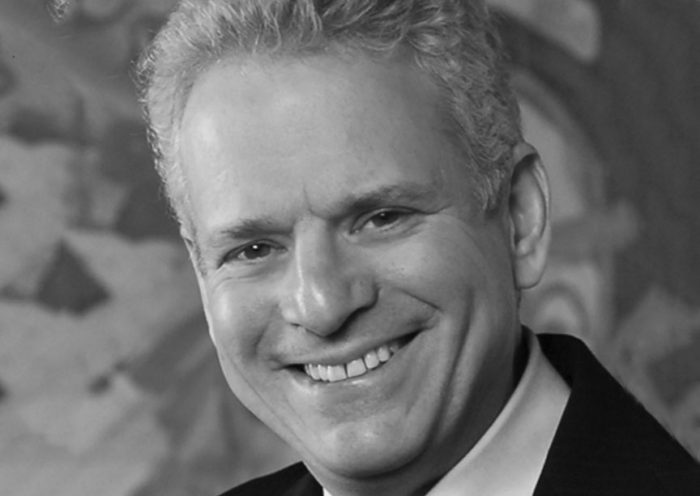
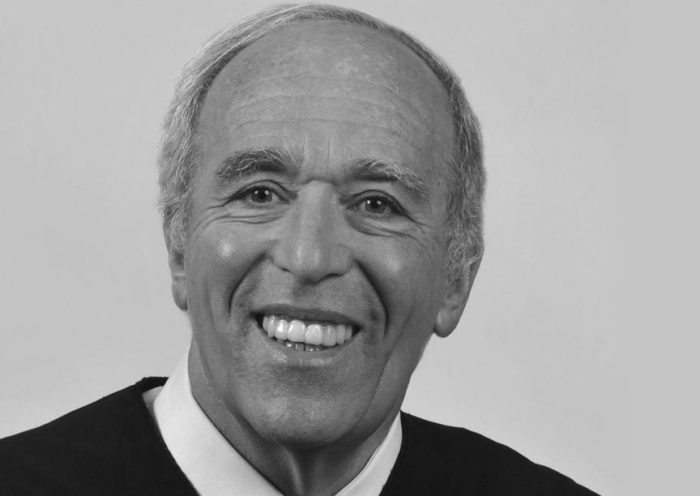
 Anthony J. Mohr’s work has appeared or is upcoming in, among other places, DIAGRAM, Eclectica, Evening Street Review, Hippocampus Magazine, North Dakota Quarterly, Saint Ann’s Review, War, Literature & The Arts, and ZYZZYVA. He has been anthologized in California Prose Directory (2013), Golden State 2017, and elsewhere. His work has received five Pushcart Prize nominations. He is an associate editor of Fifth Wednesday Journal. Once upon a time, he was a member of the LA Connection, an improv theater group.
Anthony J. Mohr’s work has appeared or is upcoming in, among other places, DIAGRAM, Eclectica, Evening Street Review, Hippocampus Magazine, North Dakota Quarterly, Saint Ann’s Review, War, Literature & The Arts, and ZYZZYVA. He has been anthologized in California Prose Directory (2013), Golden State 2017, and elsewhere. His work has received five Pushcart Prize nominations. He is an associate editor of Fifth Wednesday Journal. Once upon a time, he was a member of the LA Connection, an improv theater group.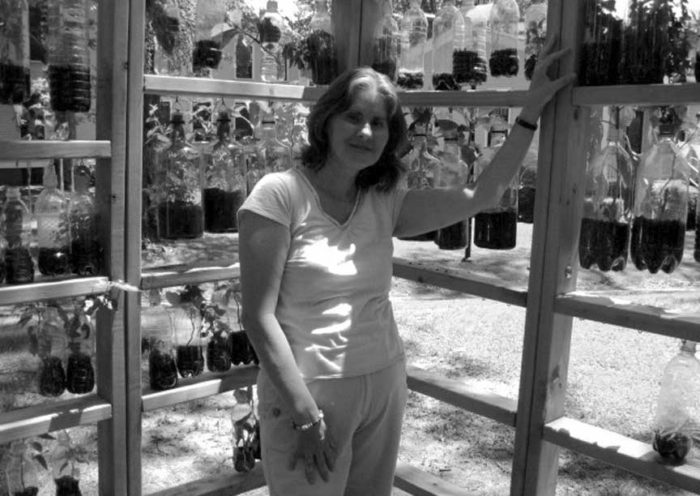
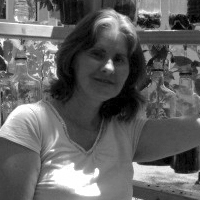 Lily Tierney’s work has appeared in Harbinger Asylum, Veil: Journal of Darker Musings, The Stray Branch, Illumen Magazine, Polu Texni, and many others. She enjoys reading and writing poetry.
Lily Tierney’s work has appeared in Harbinger Asylum, Veil: Journal of Darker Musings, The Stray Branch, Illumen Magazine, Polu Texni, and many others. She enjoys reading and writing poetry.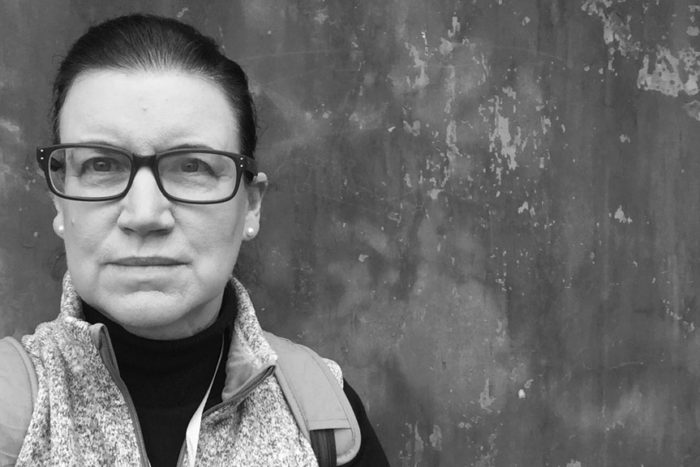
 Annette Freeman is a writer living in Sydney, Australia. She was born and raised in Tasmania, which she suspects is reflected in her writing in ways too mysterious to analyse. Her shorter work has appeared in the University of Sydney Student Anthology, BrainDrip Magazine, Collective Hub Magazine and Travel Post Monthly. She has a Masters of Creative Writing from the University of Sydney, the support of a terrific writing group, and boundless respect for a fine sentence.
Annette Freeman is a writer living in Sydney, Australia. She was born and raised in Tasmania, which she suspects is reflected in her writing in ways too mysterious to analyse. Her shorter work has appeared in the University of Sydney Student Anthology, BrainDrip Magazine, Collective Hub Magazine and Travel Post Monthly. She has a Masters of Creative Writing from the University of Sydney, the support of a terrific writing group, and boundless respect for a fine sentence.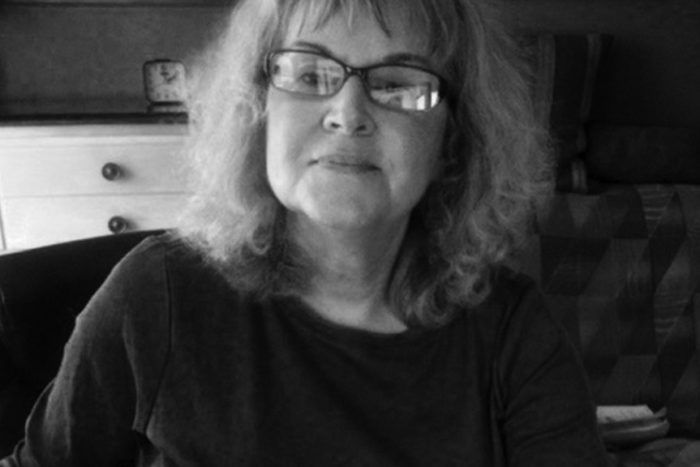
 Margaret Karmazin’s credits include stories published in literary and national magazines, including Rosebud, Chrysalis Reader, North Atlantic Review, Mobius, Confrontation, Pennsylvania Review, ASIM, The Speculative Edge and Another Realm. Her stories in The MacGuffin, Eureka Literary Magazine, Licking River Review and Mobius were nominated for Pushcart awards. She has also published a YA novel, REPLACING FIONA, a children’s book, FLICK-FLICK & DREAMER and a collection of short stories, RISK.
Margaret Karmazin’s credits include stories published in literary and national magazines, including Rosebud, Chrysalis Reader, North Atlantic Review, Mobius, Confrontation, Pennsylvania Review, ASIM, The Speculative Edge and Another Realm. Her stories in The MacGuffin, Eureka Literary Magazine, Licking River Review and Mobius were nominated for Pushcart awards. She has also published a YA novel, REPLACING FIONA, a children’s book, FLICK-FLICK & DREAMER and a collection of short stories, RISK.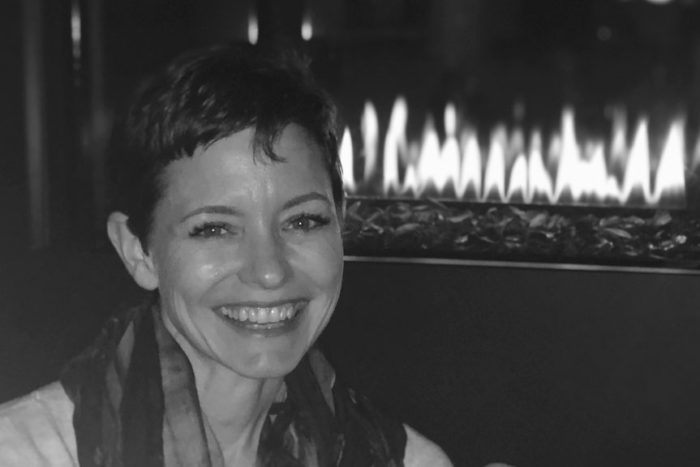
 A native Texan, Lindsey Godfrey Eccles has lived in Seattle for many years, spending as much time as she can in the mountains and occasionally practicing law. She is looking for a good home for her first novel, a magical reimagining of the early history and culture of the Pacific Northwest. You can find her on twitter at @LGEccles.
A native Texan, Lindsey Godfrey Eccles has lived in Seattle for many years, spending as much time as she can in the mountains and occasionally practicing law. She is looking for a good home for her first novel, a magical reimagining of the early history and culture of the Pacific Northwest. You can find her on twitter at @LGEccles.
 William Cass has had over 150 short stories accepted for publication in a variety of literary magazines such as december, Briar Cliff Review, and Conium Review. His children’s book, Sam, is scheduled for release in April, 2020. Recently, he was a finalist in short fiction and novella competitions at Glimmer Trainand Black Hill Press, received a Pushcart nomination, and won writing contests at
William Cass has had over 150 short stories accepted for publication in a variety of literary magazines such as december, Briar Cliff Review, and Conium Review. His children’s book, Sam, is scheduled for release in April, 2020. Recently, he was a finalist in short fiction and novella competitions at Glimmer Trainand Black Hill Press, received a Pushcart nomination, and won writing contests at 
 Scott Bassis is a young writer eager to establish himself as a serious talent. He has had short stories published in Poydras Review, The Furious Gazelle, The Acentos Review, Open: Journal of Arts & Letters, Image Outwrite, Quail Bell Magazine, The Missing Slate, Jumbelbook, Furtive Dalliance, Fiction on the Web and Rainbow Curve.
Scott Bassis is a young writer eager to establish himself as a serious talent. He has had short stories published in Poydras Review, The Furious Gazelle, The Acentos Review, Open: Journal of Arts & Letters, Image Outwrite, Quail Bell Magazine, The Missing Slate, Jumbelbook, Furtive Dalliance, Fiction on the Web and Rainbow Curve.
 Phil Gallos has been a newspaper reporter and columnist, a researcher/writer in the historic preservation field, and has spent 30 years working in academic libraries (which is more interesting than it sounds). Most recently, his writing has been published in The MacGuffin, Stonecrop Magazine, Carbon Culture Review, Burningword Literary Journal, and Foliate Oak, among others, and is forthcoming in The Wire’s Dream, and Dark Ink Magazine. He lives and writes in Saranac Lake, NY.
Phil Gallos has been a newspaper reporter and columnist, a researcher/writer in the historic preservation field, and has spent 30 years working in academic libraries (which is more interesting than it sounds). Most recently, his writing has been published in The MacGuffin, Stonecrop Magazine, Carbon Culture Review, Burningword Literary Journal, and Foliate Oak, among others, and is forthcoming in The Wire’s Dream, and Dark Ink Magazine. He lives and writes in Saranac Lake, NY.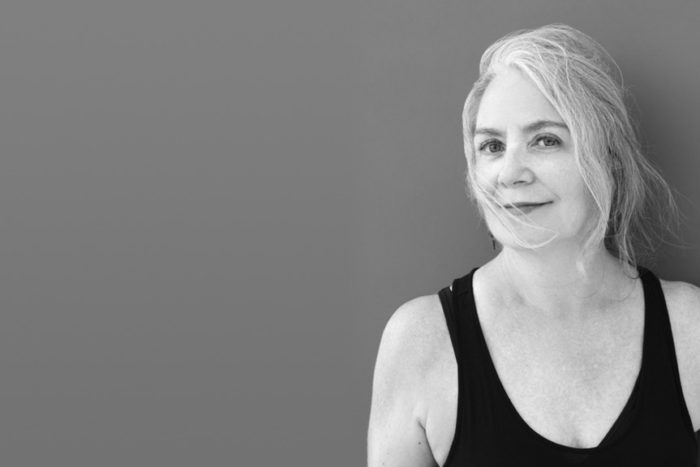
 Susan E. Lloy has consistently published internationally since 2012. Her short story collection, But When We Look Closer, was recently published by Now Or Never Publishing. Her forthcoming collection, Vita, will be released April 15, 2019. Susan lives in Montreal.
Susan E. Lloy has consistently published internationally since 2012. Her short story collection, But When We Look Closer, was recently published by Now Or Never Publishing. Her forthcoming collection, Vita, will be released April 15, 2019. Susan lives in Montreal.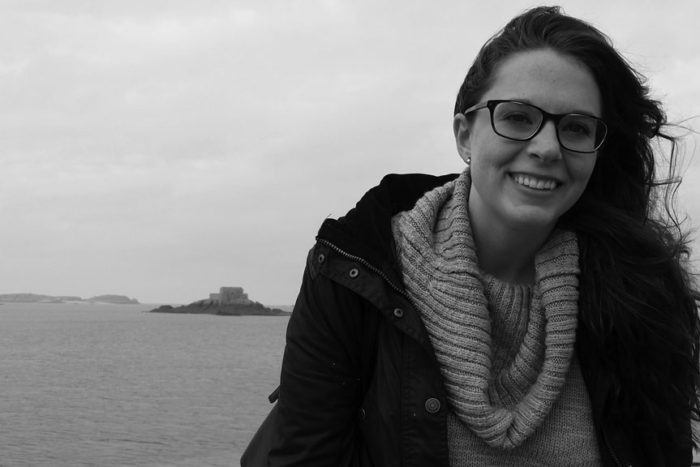
 Stephanie Mataya is a graduate of Western Washington University, and spent her days there writing stories and reading books. She was shaped by her West Coast upbringing, and has taken great joy and inspiration from living in New York, Paris, and currently, Canada. Previous work of hers has appeared in Your Impossible Voice and Scarlet Leaf Review.
Stephanie Mataya is a graduate of Western Washington University, and spent her days there writing stories and reading books. She was shaped by her West Coast upbringing, and has taken great joy and inspiration from living in New York, Paris, and currently, Canada. Previous work of hers has appeared in Your Impossible Voice and Scarlet Leaf Review.
 Evelyn Somers is the longtime associate editor of the Missouri Review and teaches writing and literature. She also serves as a staff writer for Bloom. Her work has appeared or is forthcoming in Georgia Review, Crazyhorse, the Millions, Florida Review, Southwest Review, South Dakota Review, Shenandoah, the Collagist, and Potomac Review, among many others. Her work in progress is a novel-in-stories about music, magic, and two warring female divinities.
Evelyn Somers is the longtime associate editor of the Missouri Review and teaches writing and literature. She also serves as a staff writer for Bloom. Her work has appeared or is forthcoming in Georgia Review, Crazyhorse, the Millions, Florida Review, Southwest Review, South Dakota Review, Shenandoah, the Collagist, and Potomac Review, among many others. Her work in progress is a novel-in-stories about music, magic, and two warring female divinities.
 Kobina Wright is a second generation California native with a degree in Communications from California State University, Fullerton. Wright is an artist, writer and entrepreneur and is a board member of The G.R.E.E.N. Foundation, an organization that helps to service the community through health education and navigation to support individuals and families to access quality health care.
Kobina Wright is a second generation California native with a degree in Communications from California State University, Fullerton. Wright is an artist, writer and entrepreneur and is a board member of The G.R.E.E.N. Foundation, an organization that helps to service the community through health education and navigation to support individuals and families to access quality health care.
 John Mandelberg’s short stories have appeared most recently in Prick of the Spindle, Beloit Fiction Journal, Santa Monica Review, and Storyscape. Apparently nobody wants to publish his novels but so what, he’ll keep writing more anyway. He lives in Los Angeles and usually doesn’t like any movie made after 1950.
John Mandelberg’s short stories have appeared most recently in Prick of the Spindle, Beloit Fiction Journal, Santa Monica Review, and Storyscape. Apparently nobody wants to publish his novels but so what, he’ll keep writing more anyway. He lives in Los Angeles and usually doesn’t like any movie made after 1950.
 Linda Boroff graduated from UC Berkeley with a degree in English. Her writing has appeared in McSweeney’s, The Guardian, Hollywood Dementia, Drunk Monkeys, Word Riot, Hobart, Ducts, Blunderbuss, Adelaide, Thoughtful Dog, Storyglossia, Able Muse, The Furious Gazelle, JONAH Magazine, The Boiler, Cold Creek Review, and others, including several anthologies.
Linda Boroff graduated from UC Berkeley with a degree in English. Her writing has appeared in McSweeney’s, The Guardian, Hollywood Dementia, Drunk Monkeys, Word Riot, Hobart, Ducts, Blunderbuss, Adelaide, Thoughtful Dog, Storyglossia, Able Muse, The Furious Gazelle, JONAH Magazine, The Boiler, Cold Creek Review, and others, including several anthologies. 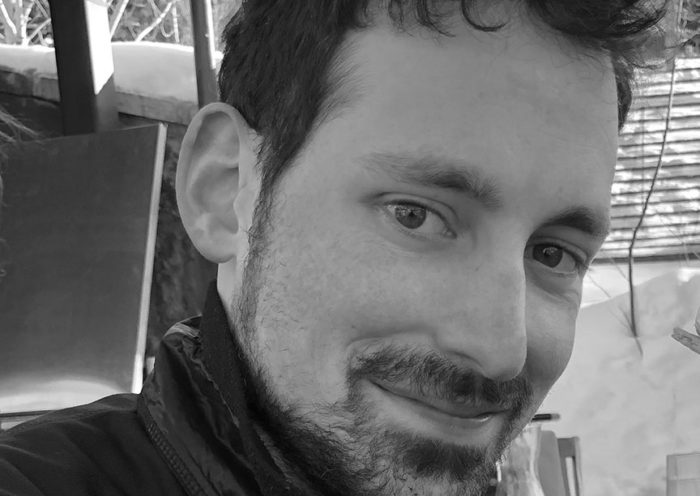
 Zachary Ginsburg was born and raised in Chicago and worked there as an educator. He is currently pursuing his MFA in Fiction at The New School.
Zachary Ginsburg was born and raised in Chicago and worked there as an educator. He is currently pursuing his MFA in Fiction at The New School.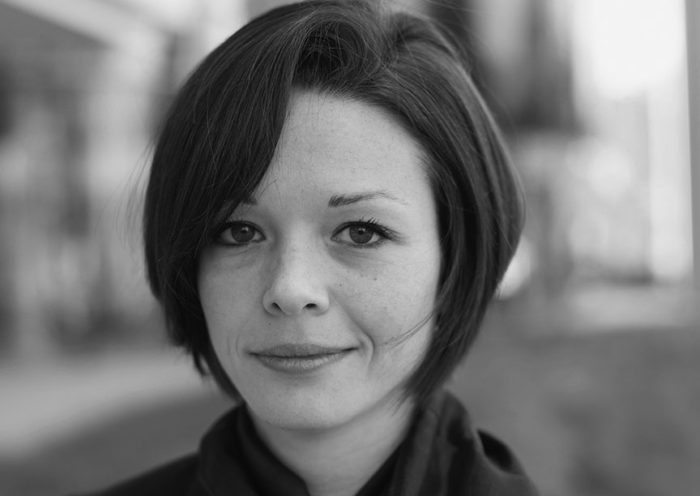
 Laura Fletcher studied creative writing at Princeton University; her work has previously appeared in The Nassau Literary Review and Wax Antlers. She has been an educator, entrepreneur, consultant, product manager, and apprentice baker, though is happiest when she is a writer. She currently lives in Denver, Colorado and finds the mountains a great comfort.
Laura Fletcher studied creative writing at Princeton University; her work has previously appeared in The Nassau Literary Review and Wax Antlers. She has been an educator, entrepreneur, consultant, product manager, and apprentice baker, though is happiest when she is a writer. She currently lives in Denver, Colorado and finds the mountains a great comfort.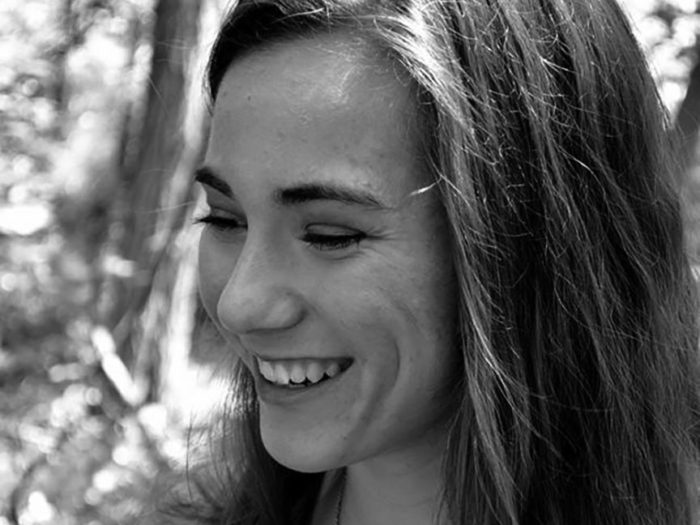
 Megan Mooney is a recent alumni of Miami University where she studied Creative Writing. As an aspiring humorist, Megan likes to inject her comic wit into stories that seek to subvert clichéd storylines. Like many people her age, she enjoys traveling and seeking outdoor adventures. Exactly where she will end up in her career still remains a mystery to her. She currently resides in Lafayette, Indiana, with her family.
Megan Mooney is a recent alumni of Miami University where she studied Creative Writing. As an aspiring humorist, Megan likes to inject her comic wit into stories that seek to subvert clichéd storylines. Like many people her age, she enjoys traveling and seeking outdoor adventures. Exactly where she will end up in her career still remains a mystery to her. She currently resides in Lafayette, Indiana, with her family.
 Annie Blake is an Australian writer, thinker and researcher. She is a wife and mother of five children. Her main interests include psychoanalysis and metaphysics. She is currently interested in arthouse writing which explores the surreal nature and symbolic meanings of unconscious material through nocturnal and diurnal dreams and fantasies. Her writing is a dialogue between unconscious material and conscious thoughts and synchronicity. You can visit her on
Annie Blake is an Australian writer, thinker and researcher. She is a wife and mother of five children. Her main interests include psychoanalysis and metaphysics. She is currently interested in arthouse writing which explores the surreal nature and symbolic meanings of unconscious material through nocturnal and diurnal dreams and fantasies. Her writing is a dialogue between unconscious material and conscious thoughts and synchronicity. You can visit her on 
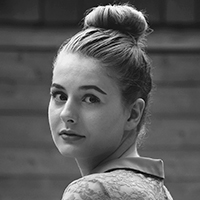 Pascale Potvin is from Toronto, Canada, and has been writing since childhood. She is currently working on a budding book trilogy. She has also just received her BAH in Stage & Screen Studies from Queen’s University, where she has written a few award-winning short films. Some of her blog pieces can be found at
Pascale Potvin is from Toronto, Canada, and has been writing since childhood. She is currently working on a budding book trilogy. She has also just received her BAH in Stage & Screen Studies from Queen’s University, where she has written a few award-winning short films. Some of her blog pieces can be found at 











